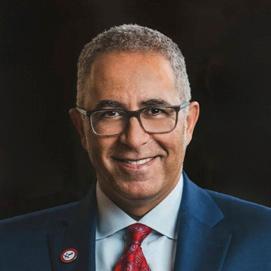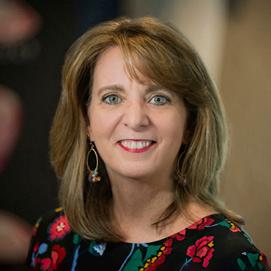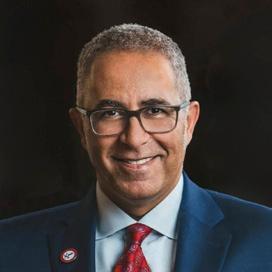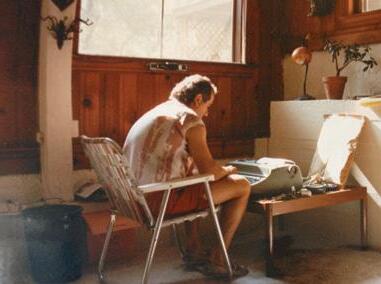



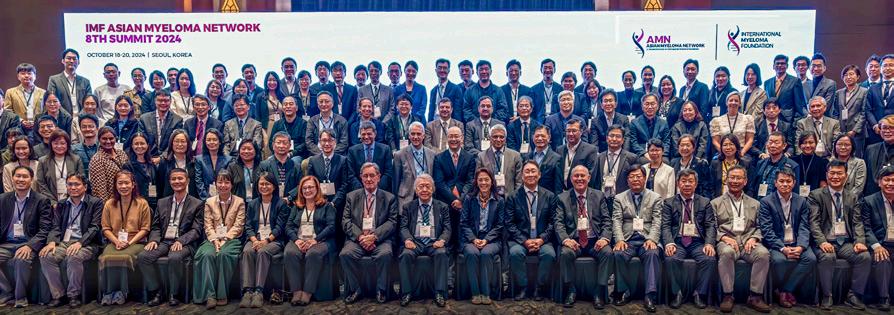

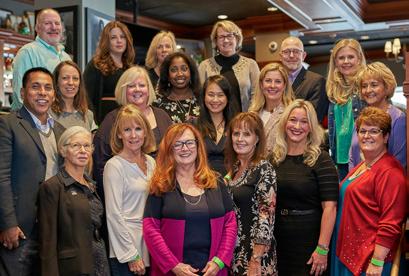
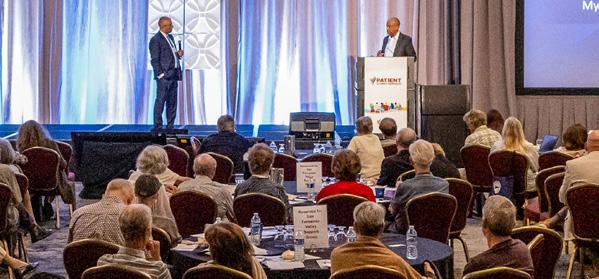
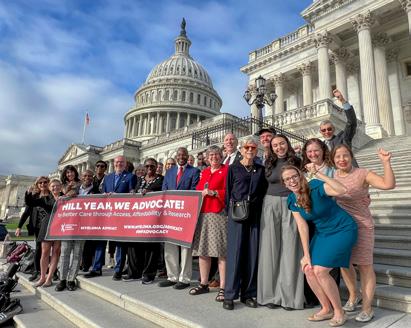
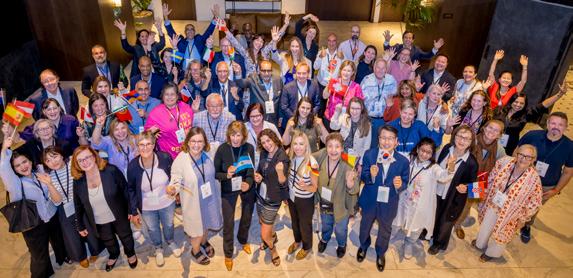











When the International Myeloma Foundation (IMF) was founded in 1990, it was the first organization focused specifically on multiple myeloma, and it remains the largest and only global organization in the field. What made the IMF extraordinary from the start was the unique combination of a bold vision and a powerful alliance. The IMF was conceived and founded by a patient, a care partner, and a physician working side-by-side.
Brian D. Novis, diagnosed at age 33, joined forces with his wife and care partner, Susie Novis, and his physician, myeloma expert Dr. Brian G.M. Durie, to create something the world had never seen before, a foundation built equally on lived experience, devoted support, and scientific and clinical expertise. Together, they set out to educate the patient community, raise myeloma awareness, and drive progress toward more effective treatments, better outcomes, and ultimately, prevention and a cure. Their guidance continues to shape the IMF’s work to this day.
The IMF is dedicated to improving the quality of life of myeloma patients while working toward prevention and a cure by focusing on our key pillars: research, education, support, and advocacy.
A world where every myeloma patient can live life to the fullest, unburdened by the disease.
In its 35-year journey, the IMF has continued to expand its global reach while remaining true to its mission and vision. The IMF unites patients, care partners, researchers, clinicians, advocates, and families across 140 countries. We are delivering reliable and actionable knowledge, advancing science, support, and equity. The IMF has celebrated countless groundbreaking “firsts” that have reshaped the landscape of myeloma. The timeline below highlights only a select few of these “firsts.”
In the past 12 months alone, IMF programming reached more than 525,000 individuals, including patients, care partners, and healthcare professionals. In 2025, the IMF’s annual Myeloma Action Month initiative reached 53.6 million social media accounts worldwide. Across social media channels, IMF content was seen more than 350 million times. Through it all, the perspectives that shaped

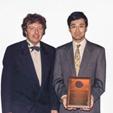
• The IMF is founded. It is the first organization dedicated to the field of myeloma.
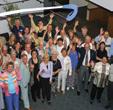
• Launched myeloma.org
• Awarded the first-ever myeloma research grant to Atsushi Ogata
• Created our first Continuing Medical Education (CME) program for doctors
the IMF’s founding remain central to its success: supporting patients and care partners, and advancing science toward a cure.
The IMF is at the forefront of technological innovation. The IMF Myeloma Knowledge Platform now includes Myelo®, an AI chatbot that has answered more than 82,000 questions from patients and care partners with accurate, ethical, and compassionate guidance. Myelo MD, the upcoming tool that will extend AI support to healthcare professionals, will deliver expert-backed diagnostic and treatment recommendations to non-specialists in real time. The SparkCures Clinical Trials Matching Engine is already helping countless patients to close knowledge gaps and connect to clinical trials.
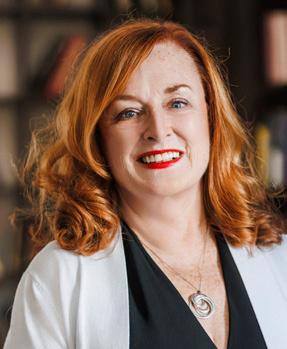
As the IMF looks ahead, it does so with the same clarity of purpose that defined its beginning. The IMF serves as a vital bridge between evidence and lived experience, bringing together world-class research and the real-world needs of those living with myeloma. The IMF’s impact is tangible.
Having joined the IMF in 2006, I have had the honor and privilege to twice serve as the IMF’s Interim Chief Executive Officer. I am now overjoyed to welcome Heather Cooper Ortner as the IMF’s new President and CEO. I have worked with Heather previously, when she was IMF Executive Vice President of Development, and I am assured of her remarkable leadership and deep commitment to the IMF’s mission and vision. As the IMF celebrates its 35th year defying boundaries and redefining possibilities, we welcome a new chapter under Heather’s prudent and thoughtful direction. We remain confident in accomplishing the IMF’s mission and vision.

Diane Moran, RN, MA, EdM Interim Chief Executive Officer Senior Vice President, Strategic Planning
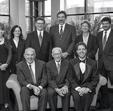
• Held the IMF’s first Support Group Leaders Summit

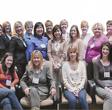
• Created “Myeloma Awareness Week”
• Awarded the first Lifetime Achievement Award to Dr. Robert A. Kyle. Named in his honor, this annual award recognizes myeloma researchers who advance patient treatment and care.

• Established the Nurse Leadership Board® to improve patient care
• Expanded Awareness Week into Awareness Month (now Myeloma ACTION Month)
• Held the first-ever myeloma patient educational seminar
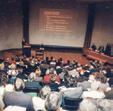
• Created first myeloma-specific support group

• Expanded global reach to Japan & the UK
• Launched advocacy initiative to influence policy
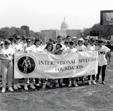
• Established the International Myeloma Working Group® to advance the standard of care
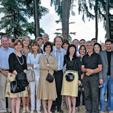
• Expanded global reach by launching IMF Latin America
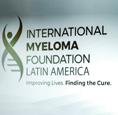
• Created the International Staging System of universally applicable criteria for staging myeloma

• Created the Asian Myeloma Network to expand global reach to Asia

In October 2025, the International Myeloma Foundation (IMF) announced that Heather Cooper Ortner has been named as the IMF’s new President and Chief Executive Officer. Ms. Cooper Ortner served as the President & CEO of Alzheimer’s Los Angeles and is the former CEO of the Dr. Susan Love Foundation for Breast Cancer Research. She also served as Director of Development for The Brandeis-Bardin Institute, and as Director of the Western Area Development Center for Hadassah. Ms. Cooper Ortner graduated from the University of California, Los Angeles (UCLA) with a Bachelor of Arts degree in English.
Ms. Cooper Ortner has longstanding ties with the IMF, having spent seven years with the organization, including serving as Executive Vice President of Development. She is excited to return to lead the IMF into a new era:
“I am honored to return to the IMF as President and CEO –a full-circle moment with an organization that was formative in my career. It is a privilege to bring my experience leading healthcare nonprofits back to a mission that inspires me deeply. Together with our Board of Directors, dedicated staff, and the extraordinary community of professionals and volunteers around the world, we will continue to advance research, education, support, and advocacy – always with urgency and determination to accelerate the search for a cure. I am humbled to serve alongside so many who are making a difference every day for patients and families affected by myeloma, and I look forward to building on the IMF’s legacy of impact.”
IMF Board Member and chair of the search committee, Andrew Kuzneski III, had this to say:
“Our primary goal was to identify a visionary leader with a proven track record of innovation – someone who could build on the IMF’s incredible 35-year legacy by pioneering new


• Established the BSRI® to find a cure for myeloma
• Launched the Chinese Master Class to educate myeloma doctors in China

• Unified global myeloma organizations under the Global Myeloma Action Network®
• Opened the ASCENT clinical trial to seek a functional cure

ways to serve our community. Heather stood out as that leader. Having served on the IMF Board for over a decade, I worked alongside Heather during her first tenure with the IMF, and it is my personal and professional privilege to welcome her back as our new President and CEO.
Heather has built an impressive record of innovative CEO leadership, developing novel platforms for research engagement and community-based patient education. She returns to us as a proven leader, ready to apply her unique expertise and unwavering commitment to the global myeloma community. Her appointment feels like a strategic and welcome homecoming.”
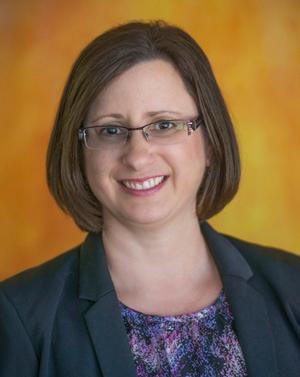
IMF Chairperson of the Board, Dr. S. Vincent Rajkumar, expressed a similar sentiment:
“I am thrilled that Heather Cooper Ortner will assume the role of IMF President and CEO. She is a visionary leader who has a wealth of experience and knows our organization well. She has dedicated her career to nonprofit organizations. I look forward to working with her to grow and fulfill our mission.”
Ms. Cooper Ortner’s appointment comes at a historic moment –the IMF is celebrating 35 years of serving the myeloma community through its concerted efforts in myeloma research, education, support, and advocacy. Under Ms. Cooper Ortner’s leadership as the IMF’s incoming President and CEO, the organization looks forward to a new chapter as we continue to fulfill our mission and aim to achieve our vision: A world where every myeloma patient can live life to the fullest, unburdened by the disease. MT
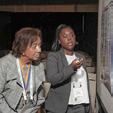
• Created a Virtual Tissue Bank and Immune Therapy Registry to facilitate collaborative research
• Created the Medical Student Scholars program to reduce health disparities in myeloma

• Launch cure-focused clinical trial
• Launch “Myelo MD” AI for doctors and researchers
• Find the cures for myeloma by 2035
2012 2015 2014 2018 2016 2023 2022 2021 2019 2025 & Beyond 2024
• The International Myeloma Working Group® updated the diagnostic criteria of myeloma


• Launch of iStopMM, the largest screening study for MGUS, SMM, and myeloma

• Held inaugural African American Initiative Council and created the M-POWER program to improve patient outcomes
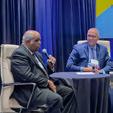
• ASCENT clinical trial reports a functional cure

• MRD research streamlined future drug approvals
• Achieved historic cap on Medicare drug costs
• Launched Myelo®, the first myeloma-specific AI for patients
• Simplified clinical trial matching for patients
• Formed the new IMF Scientific Advisory Board
• Held first LAMN Summit to expand treatment access in Latin America

By Dr. Joseph Mikhael IMF Chief Medical Officer
The international myeloma community gathers annually for four days to review the latest research in myeloma and to facilitate discussion between the world experts. With more than 3,000 attendees from over 70 countries, the 2025 International Myeloma Society (IMS) annual meeting was inordinately busy and productive. Below are just some areas of note in research and discussion.
Smoldering multiple myeloma (SMM) continues to be a very hot topic as we seek to define this condition more accurately. We are also working to determine the optimal time to intervene with treatment and studying what specific treatment that might be. One fascinating abstract presented the preliminary results of using the novel bispecific antibody linvoseltamab (Lynozyfic™) as monotherapy for patients with high-risk smoldering myeloma (HR SMM). The response rate in the group of 20 study patients was 100%, and it appears to come with fewer side effects than when bispecific antibodies are given later in the disease course.
Significant advances have been made in frontline therapy, the initial treatment given to a patient, with the introduction of quadruplet (4-drug) therapy for most patients. Several ongoing clinical trials are trying to answer the question: Can we improve on this?
The MajesTEC-5 clinical trial is studying the bispecific antibody teclistamab (Tecvayli®) in frontline therapy prior to an autologous stem cell transplant (ASCT) in several combinations, adding it to daratumumab (Darzalex®), bortezomib (Velcade®), lenalidomide (Revlimid®), and dexamethasone [DVRd]. It is too early to make detailed conclusions, but the response rate was 100% and patients were able to have their stem cells collected in preparation for ASCT. However, infection rates were high, underscoring the importance of reducing the risks of infection in patients who are treated with bispecific antibodies.
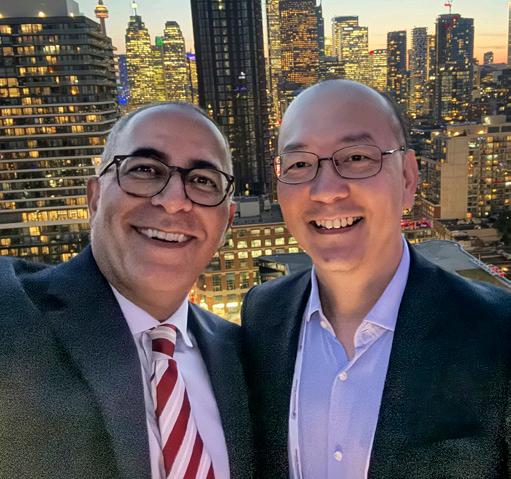
Another clinical trial evaluated the novel drug iberdomide, which is part of a new class of agents known as cereblon E3 ligase modulatory drugs (CELMoDs) that is not yet approved by the U.S. Federal Drug Administration (FDA) for use in myeloma but is being heavily studied in clinical trials, mostly in the relapsed refractory multiple myeloma (RRMM) setting. This trial was the combination of iberdomide + daratumumab + dexamethasone in patients not proceeding to ASCT. This very potent combination therapy demonstrated a response rate of 95%, with more than 50% of study patients achieving minimal residual disease (MRD)-negativity. This may show both enhanced activity and tolerability of iberdomide in myeloma.
There is ongoing research on how to optimally treat patients who have high-risk multiple myeloma (HRMM). The new classification of HRMM by the IMF International Myeloma Working Group (IMWG) and IMS should facilitate more studies to help us identify more effective treatments.
One important study presented at IMS was the GMMG-CONCEPT clinical trial from Germany, which investigated long-term therapy with the quadruplet combination of isatuximab (Sarclisa®), carfilzomib (Kyprolis®), lenalidomide, and dexamethasone [IsaKRd] in ASCT-eligible (TE) and ASCT-noneligible (TNE) patients with newly diagnosed multiple myeloma (NDMM) with HRMM for whom prospective clinical trials are limited, aiming to induce MRD-negativity. About 20% of patients with NDMM have highrisk disease, and patients with HRMM tend to relapse quickly after achieving remission.
In the Summer 2025 edition of Myeloma Today, I reviewed how prolonged combination therapy seemed to improve outcomes in patients with HRMM. At IMS, updated data was presented on the different subgroups of patients with HRMM. Having more than one cytogenetic abnormality (CA), especially when one of the CAs is deletion 17p, portends an even shorter duration of remission. This concept of “double hit” or ultra-high-risk MM
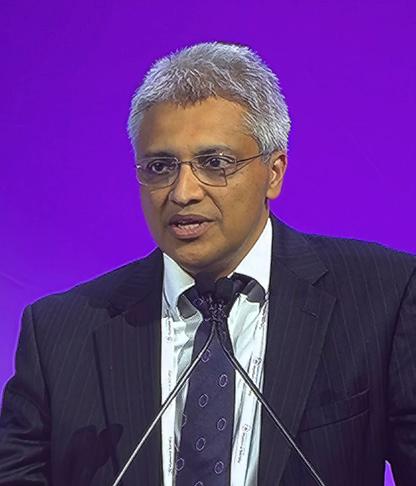
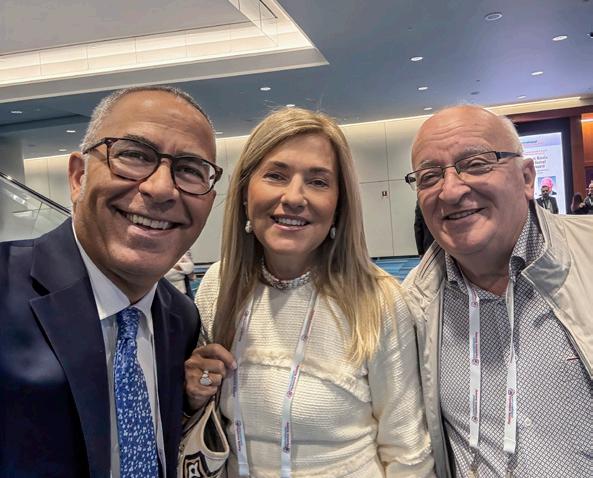
identifies a group of patients who really require a novel approach to therapy.
At IMS, we gained insight on how to define “functional high-risk” disease, when patients relapse within 18 months of starting frontline therapy. Many of these patients do not have the usual markers of HRMM but should be treated as high-risk as early relapse speaks to a more aggressive disease.
At present, one of the most important discussions among myeloma doctors is focused on optimizing the novel treatment approaches of CAR T-cell therapies and bispecific antibodies. As more immunotherapies enter the market, we seek to understand the best way to sequence them. Two areas of interest explored at IMS were T cell function and targets on the myeloma cells. Both CAR T-cell therapies and bispecific antibodies depend on functioning T cells and yet we do not have easy ways to assess T cell “health” and how they are impacted by the disease and other treatments.
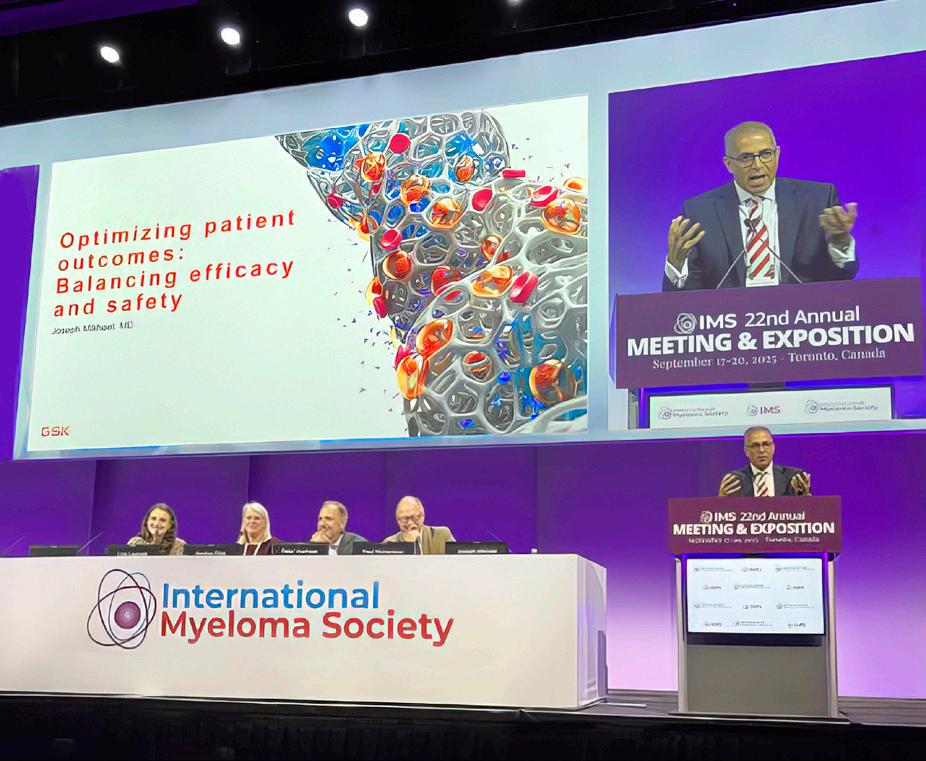
(left to right) Dr. Lisa Leypoldt (Researcher, CONCEPT clinical trial), Martine Elias (Chief Executive Officer, Myeloma Canada), Dr. Peter Voorhees (Atrium Health, North Carolina), Dr. Paul Richardson (Jerome Lipper Multiple Myeloma Center, Dana-Farber Cancer Institute), Dr. Joseph Mikhael (Chief Medical Officer, International Myeloma Foundation)
We also know that immunotherapies depend on the targets they adhere to on the myeloma cell – primarily BCMA and GPRC5D. Assays have been developed to test the presence of these targets after being treated with these therapies, and they may be able to guide us in our choice of next therapy. For example, if someone has had a CAR T-cell therapy that targets BCMA and their disease then progresses, we can test their myeloma as to the expression of BCMA to know if another BCMA therapy is likely or unlikely to work. Having these tests in real time could help in treatment decisions and the field is clearly moving to testing these prior to instituting treatments to optimize their use.
“Bridging” therapy is treatment given to patients after their T cells are collected for CAR T-cell therapy but before those T cells are re-infused. It is important for many reasons. When a patient’s disease is well-controlled, they are less likely to experience some of the short-term side effects like cytokine release syndrome (CRS) and neurological toxicity. Furthermore, patients will have a better response to the therapy. Lastly, effective bridging therapy seems to reduce the risk of longer-term neurological toxicities like Parkinsonism. I expect to see more emphasis on bridging therapies as we use more CAR T-cell therapy.
It is exciting to see new therapies emerge from the constantly changing environment of myeloma research, and more are on the
way! Trispecific antibody therapies are drugs that adhere to TWO targets on the myeloma cell to enhance their affinity to myeloma when they engage T cells to destroy those myeloma cells. One fascinating study evaluated giving TWO separate CAR T-cell products, one BCMA-directed and one GPRC5D-directed. While it is too early measure the impact, this study demonstrated that it is feasible and may even further deepen response as it may capture even more myeloma cells. Lastly, a protocol was presented with cevostamab, a bispecific antibody that has an entirely new target known as FcRH5, immediately after CAR T-cell therapy in an effort to achieve a deep response with CAR T, then maintain it long-term with a bispecific antibody that has a different target. MRD testing will be used to guide the discontinuation of the cevostamab.
Stay informed about the key developments in the field of myeloma! Sign up at subscribe.myeloma.org for our quarterly journal Myeloma Today and weekly e-newsletter Myeloma Minute and contact the IMF InfoLine with your myeloma-related questions and concerns. MT
InfoLine phone lines are open 9 a.m. to 4 p.m. (Pacific) Monday through Friday at 1.800.452.CURE in the U.S. and Canada and 1.818.487.7455 worldwide. You can also email InfoLine@myeloma.org or visit mmsm.link/infoline to schedule a convenient time to talk with an IMF InfoLine Coordinator.
By Lisa Paik
IMF Executive Vice President, Research & Operations
Nearly 170 myeloma research projects have been funded by the IMF as part of the Brian D. Novis Research Grants program. Launched in 1995 and named in memory of the IMF co-founder, this program supports groundbreaking research that aims to increase our understanding of myeloma in order to improve patient outcomes and to help find a cure.
The selection of the projects is a competitive process. “The Brian D. Novis Research Grants recognize exceptional scientists dedicated to improving patient outcomes in myeloma. These grants are made possible by the generosity of our donors, whose support drives the innovative research transforming patient care today and bringing us closer to a cure tomorrow,” said Dr. S. Vincent Rajkumar (IMF Chairperson of the Board). The philanthropic generosity by the friends of the IMF who share our vision of a world without myeloma and a better quality of life for all myeloma patients has funded more than $8,000,000 in grants to support promising research by both senior and junior investigators.
On August 16, the Brian D. Novis Research Grants award ceremony was held during a reception and dinner directly following this year’s IMF Patient & Family Seminar in Los Angeles, CA. This event is a unique in-person opportunity for the donors and the scientists to meet each other. Many donors and researchers form a transformative bond as they continue to follow each other’s progress through the years. The Brian D. Novis Research Grant program is a rewarding and meaningful philanthropic experience for the donors who become part of the efforts to find a cure through their support of science.
Diane Moran (IMF Interim CEO and Senior VP of Strategic Planning) introduced this year’s grant recipients, noting that the impact of this program over the past 30 years has helped shape the future of myeloma research: “The IMF is helping to fuel bold, high-impact research across the globe. This collective effort has transformed the outlook for myeloma patients. Survival has dramatically improved, more than 20 therapies are reaching patients, and we are beginning to see a clear path toward a cure. We proudly recognize the 2025 Brian D. Novis Grant recipients, each of whom carries forward this legacy of progress. Together, we are advancing science, supporting innovation, and most importantly, standing beside every patient who’s counting on us.”
Dr. Joseph Mikhael (IMF Chief Medical Officer) emphasized that myeloma research is vital to advancing myeloma care: “The IMF has been a trusted resource for the myeloma community as well as a critical convener of research worldwide. The IMF conducts research with the CCC model – Creative, Collaborative, Comprehensive. Creative in that we seek novel and unique ways to understand, measure, and attack myeloma – a multifaceted approach to conquer this cancer. Collaborative in that we bring together academic institutions, patients, industry, and regulators – the world of myeloma all in one place, to find solutions that individually could not be discovered. Comprehensive in that we approach myeloma from the bench to the bedside, from its precursors to its most aggressive forms – we cover the whole spectrum of the disease and all who are affected by it worldwide.”
The following investigator was awarded $80,000: Norma C. Gutiérrez, MD, PhD Institute for Biomedical Research of Salamanca (IBSAL), Spain
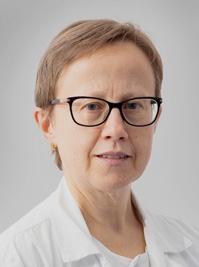
“RUVBL1 as a synthetic lethality approach for MYC overexpressing multiple myeloma”
Donor: Miracles for Myeloma 5K Run/Walk
Organizers: Ron & Sheree Pask
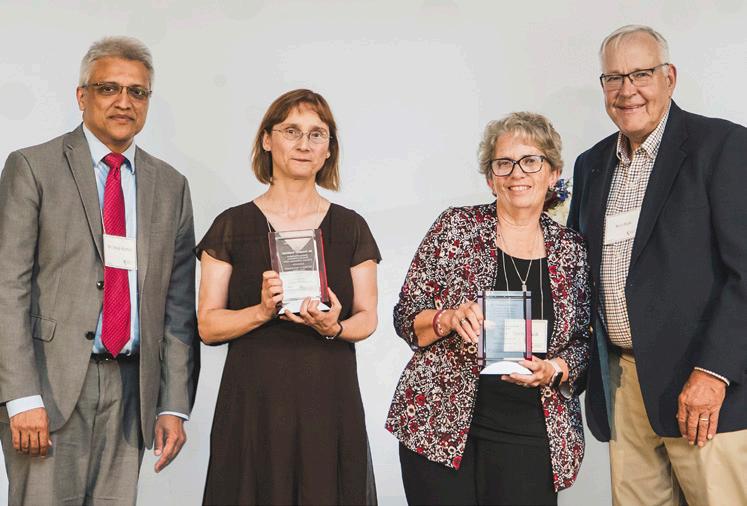
Dr. Gutiérrez is an attending physician of hematology and an associate professor in the Department of Medicine at the University Hospital of Salamanca. She is also the principal investigator of “Molecular and Cellular Biology of Hemopathies” at IBSAL. Her primary research focuses on understanding the genetic basis of myeloma and other monoclonal gammopathies using high-throughput genomic technologies and functional assays. To date, she has published more than 200 peer-reviewed original papers in international journals.
Dr. Gutiérrez’s IMF-funded project aims to validate RUVBL1 as a synthetic lethal gene for MYC and evaluate its inhibition as a new therapeutic approach for MYC-overexpressing myeloma patients. She explained: “Multiple myeloma is characterized by malignant plasma cell accumulation in the bone marrow. The MYC oncogene is altered in 40-50% of myeloma cases, and its overexpression is linked to increased tumor growth and disease progression. Directly targeting MYC is challenging due to its complex structure and involvement in numerous cellular processes. One strategy that could help to overcome the difficulties in the development of direct inhibitors is to exploit the concept of synthetic lethality.”
“Myeloma is a type of blood cancer where abnormal plasma cells accumulate uncontrollably in the bone marrow. The MYC gene is commonly altered in myeloma, accelerating tumor growth and disease progression. The aim of this research is to improve survival and quality of life of myeloma patients by exploring innovative treatment approaches.”
The following investigator was awarded $50,000: Esperanza Martín-Sánchez, BSc, PhD

Cancer Center Clínica Universidad de Navarra –Pamplona, Spain
“Defining the pathogenesis of multiple myeloma by integrative next-generation flow and sequencing analyses of CTCs and MRD clones”
Donor: Czerkies Memorial Golf Outing
Organizer: Craig Czerkies
Dr. Martín-Sánchez earned her PhD in Molecular Biology and Biomedicine from the Spanish National Cancer Research Centre (CNIO, Madrid, Spain), where she developed her thesis with the Lymphoma Group, focusing her research on the identification of new potential therapeutic targets in chemoresistant lymphomas. For more than 15 years, Dr. Martín-Sánchez’s participation in 20 research projects has provided her with expertise in the molecular biology of cancer, reflected in 22 publications and more than 30 peer-reviews in scientific journals.
During the pandemic, Dr. Martín-Sánchez explored COVID-19 immunopathobiology and vaccine effectiveness to identify highrisk immune biomarkers, particularly in myeloma patients. Shortly after, she was granted by the Spanish Association Against Cancer to develop minimally invasive methods to detect early myeloma.
Dr. Martín-Sánchez’s IMF-funded project aims to elucidate the biological significance and genomic characteristics of myeloma circulating tumor cells (CTCs) and minimal residual disease (MRD) cells using next-generation flow (NGF) cytometry and sequencing technologies. CTCs are present in a significant portion of myeloma patients and may represent a metastatic subclone with unique genomic features.
As Dr. Martín-Sánchez noted: “Additionally, we aim to characterize the genomic signature of ultra-chemoresistant MRD cells. These studies seek to identify novel therapeutic targets to prevent relapse and improve treatment outcomes in myeloma.” By focusing on these cells, she hopes to discover why some patients experience relapse even after intensive therapy and to identify potential new treatments to prevent myeloma from coming back.
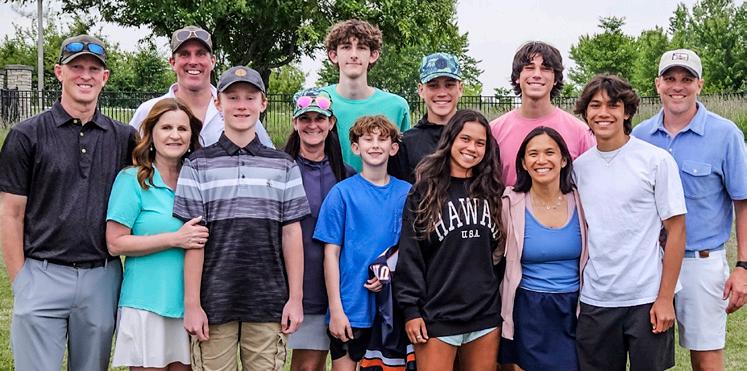
The following investigator was awarded $50,000:
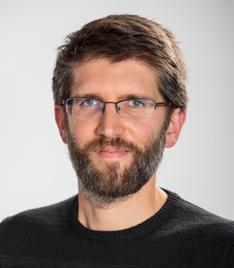
Arnold Bolomsky, PhD
National Institutes of Health (NIH), U.S.A. “Targeting Novel Regulators of IRF4: Examinationof RNA binding proteins regulating IRF4 expression as targetable vulnerability in multiple myeloma”
Donor: Mission for Matt
Organizers: Debbie Beatty and Family
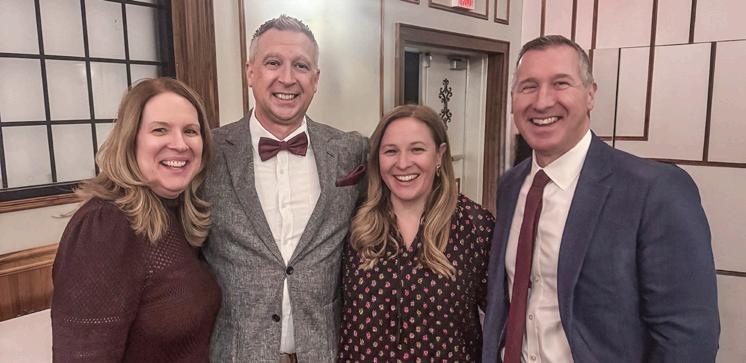
Dr. Bolomsky began his myeloma research career as an undergraduate student in the laboratory of myeloma expert Prof. Heinz Ludwig in Vienna, Austria. Dr. Bolomsky is now at the Lymphoid Malignancies Branch at the National Institutes of Health (NIH). His research has been published in top-tier journals and both supported and awarded by multiple independent funding agencies. Dr. Bolomsky’s IMF-funded project aims to define how RNA binding proteins control IRF4 expression and regulate oncogenic transcription. Targeting of IRF4 has curative potential.
As Dr. Bolomsky explained: “Tremendous progress has been achieved in the field of myeloma. This has made long-term disease control a realistic goal for many patients. However, continuous treatment compromises quality of life and highlights the need for curative approaches. We believe that new drug classes targeting plasma cell-specific dependencies are key to achieve a myeloma cure. This study investigates novel approaches to target IRF4, the most essential myeloma gene and highly specific oncogenic driver of myeloma.”
Science requires funding to search for a cure through research. The IMF is grateful to all its donors for sustaining the Brian D. Novis Research Grants program for the past 30 years. We hope you’ll continue to support the IMF’s initiatives and play a vital role in our fight against myeloma. MT
To learn more about the Brian D. Novis Research Grants program and the projects it has funded, visit myeloma.org/brian-d-novis-research-grants .
Carrie Bellerive, BS, RN, BMTCN® Memorial Sloan Kettering Cancer Center
Kevin Brigle, PhD, ANP VCU Massey Comprehensive Cancer Center
Donna D. Catamero, ANP-BC, OCN®, CCRC Mount Sinai Health System
Beth Faiman, PhD, MSN, APN-BC, AOCN®, BMTCN®, FAAN, FAPO Cleveland Clinic Taussig Cancer Institute
Elizabeth Finley-Oliver, MSN, ARNP, AGNP-BC H. Lee Moffitt Cancer Center & Research Institute
Charise Gleason, MSN, NP-BC, AOCNP® Winship Cancer Institute of Emory University
Michaela Hillengass, RN, ACSM-CPT Roswell Park Comprehensive Cancer Center
Lisa Hwa Christenson, APRN, DNP, CNP Mayo Clinic–College of Medicine
Tracy King, PhD, MN, RN Royal Prince Alfred Hospital, Australia
Rebecca Lu, MSN, FNP-C MD Anderson Cancer Center
Patricia A. Mangan, RN, MSN, APRN-BC Abramson Cancer Center
Teresa Miceli, RN, BSN, OCN® Mayo Clinic–College of Medicine
Amy Pierre, RN, MSN, ANP-BC Memorial Sloan Kettering Cancer Center
Tiffany Richards, PhD, ANP-BC, AOCNP® MD Anderson Cancer Center
Mary Steinbach, PhDc, DNP, APRN Huntsman Cancer Institute
Joseph D. Tariman, PhD, MBA, ANP-BC, FAAN Creighton University
Daniel Verina, DNP, RN, ACNP-BC Mount Sinai Medical Center
By Diane Moran IMF Interim Chief Executive Officer Senior Vice President, Strategic Planning
The IMF Nurse Leadership Board (NLB) gathered for its annual faculty meeting to address the needs of patients with myeloma. This year’s meeting took place in in Cleveland, OH. It was co-chaired by Dr. Beth Faiman and Dr. Mary Steinbach.
“We are delighted to gather for the 21st meeting –19th year – of the Nurse Leadership Board,” said Diane Moran as she welcomed the NLB nurses, sponsors, and IMF staff to the meeting. “IMF’s vision is a world where every myeloma patient can live life to the fullest, unburdened by the disease. Our mission is improving the quality of life of myeloma patients while working toward prevention and a cure. Established in 2006, the NLB is a cornerstone of the IMF and a key to accomplishing the IMF’s mission.” Diane recognized the founding members of the NLB, the retiring members, and the recent additions to the board.
Diane presented Beth with the first-ever NLB Leadership & Mentorship Award, a distinguished recognition given for outstanding and innovative individuals working in the fields of nursing, clinical practice, and patient care. NLB nurses throughout the years have benefited from Beth’s encouragement and generosity, and they shared their experiences during a celebratory dinner.
“Through the NLB, we have reached thousands of nurses directly and indirectly, and educated and empowered hundreds of thousands of patients and their care partners,” said Beth. “The NLB’s unwavering mission is to enhance both the nursing care and selfcare of patients with myeloma.” Next, Beth reported on the NLB accomplishments over the past year that focused on patient and care partner education:
Presentations at four Patient & Family Seminars and numerous Myeloma Community Workshops, and at the Annual Support Group Leaders Summit
Virtual presentations to myeloma support groups
Living Well Webinar on nutrition
Facebook Live events
Social media outreach
Publication of the tip card Building Your Support Network, released in August 2024
Publication of the tip card Caring for the Care Partner, released in July 2025
Beth also highlighted the NLB accomplishments over the past year that focused on educating nurses:
The NLB symposium at the Oncology Nursing Society (ONS) Congress, Case Studies for Nurses: New Therapies and Regimens for Patients with Multiple Myeloma, was attended by 600 in-person attendees and about 3,500 virtual learners who deliver nursing care for approximately 23,000 myeloma patients each month.
New Myeloma University Modules on bispecific antibodies and transitions of care were launched and can be viewed at university.myeloma.org
Publication of the tip card Conversation Starters for Nurses, released in July 2025
“Optimizing Transitions of Care in Myeloma Immunotherapy: The Nurse’s Role” published in the Clinical Journal of Oncology Nursing (CJON)
“Understanding the Role and Clinical Management of Bridging Therapy During CAR T-Cell Therapy for Relapsed or Refractory Multiple Myeloma,” published in the Journal of the Advanced Practitioner in Oncology (JADPRO)
Article on monoclonal gammopathy of undetermined significance (MGUS) accepted for publication by JADPRO
Article about clinical trials to be submitted for publication
Published White Papers on CAR T-cell and Bispecific Antibody therapies
Mentorship of nurses in Singapore
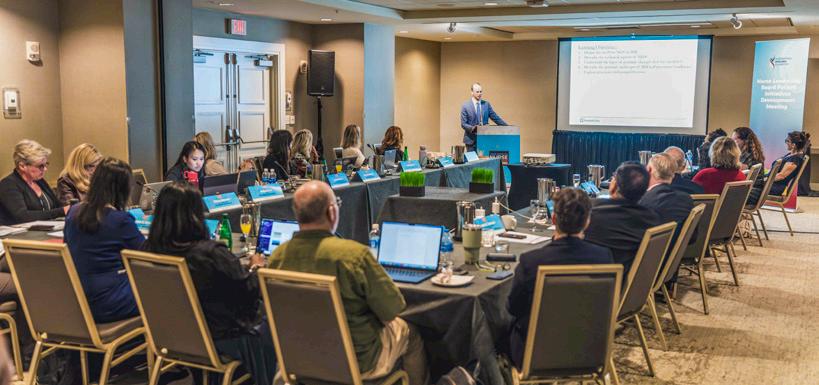
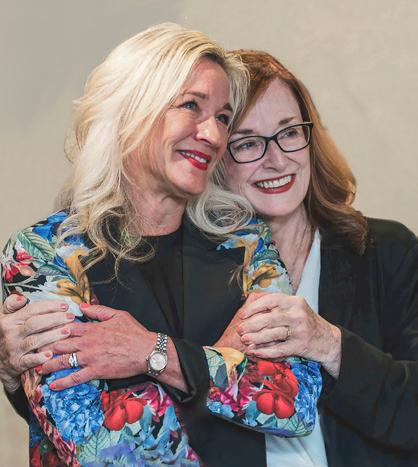
NLB members participated on committees of the International Myeloma Working Group (IMWG)
NLB members attended the International Myeloma Society (IMS) annual meeting
Each year, NLB nurses complete a survey in advance of the annual meeting. “The survey helps us understand the changing needs of patients and care partners as well as nurses. This helps ensure that the NLB’s work aligns with the changing needs and priorities,” explained Mary. Based on the survey, two new NLB projects have been prioritized:
Mentoring advanced practice providers and community nurses project led by Dr. Beth Faiman and Dr. Mary Steinbach
Care partner training and toolkit project led by Samantha Shenoy and Lisa Hwa Christenson
In addition, the NLB will continue to serve as speakers for Patient & Family Seminars, Myeloma Community Workshops, webinars, virtual support group talks, and nurse education projects and events, including a Myeloma Symposium at the ONS Congress and Myeloma University modules on bispecific antibody side effects and managing BCMA-bispecific antibodies in the community.

Dr. Joseph D. Tariman, a long-time NLB member, presented on shared decision-making and outlined his vision for potential research.
The NLB plans to launch a web-based resource with protocols for managing side effects and toxicities for myeloma patients treated with immune therapies. This resource will help community practices adopt therapies by reducing barriers to implementation.
New scholarly articles for nurses under development:
Immunotherapy Symptom Management
Long-term CAR T-Cell Therapy Implications
Genomics and Biomarkers in Myeloma
Infection Prevention and Management
Bone Health
Care Partners
Survivorship

Dr. Louis Williams from the Cleveland Clinic gave an informative talk on genomics in multiple myeloma. He explained how next-generation sequencing is providing new information about myeloma. Changes that may lead to myeloma are detectable decades before a person develops myeloma. He explained his perspectives on how genomics understanding may evolve.
Visit nlb.myeloma.org to learn how the NLB is improving the nursing care and self-care of patients with myeloma via publications, symposia, multimedia, and research. MT
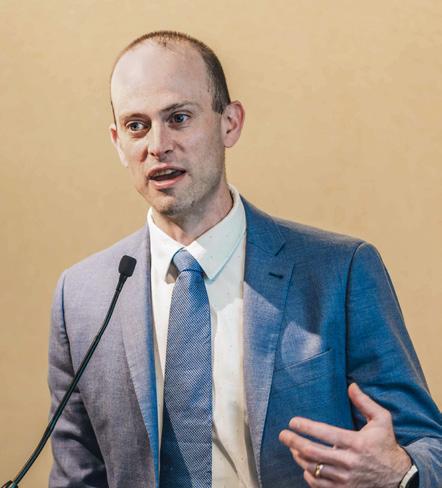
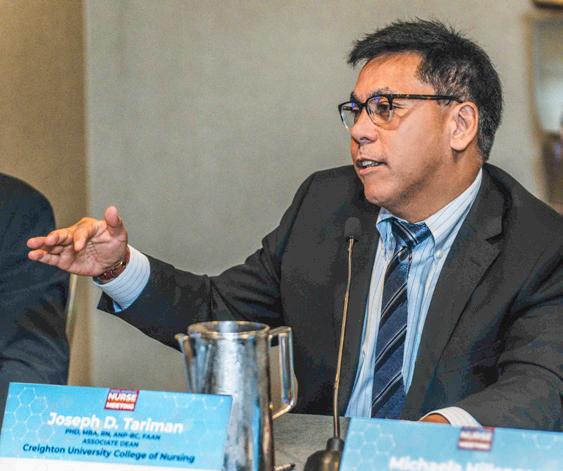
By Daniel Navid IMF Senior Vice President, Global Affairs
The IMF Asian Myeloma Network (AMN) was established by the International Myeloma Foundation (IMF) in 2011 to bring together the leading myeloma specialists from across Asia. The first of its kind in the region, the AMN is presently comprised of 224 scientific advisors from all major myeloma research centers in China, Hong Kong, India, Japan, Malaysia, Philippines, Singapore, South Korea, Taiwan, Thailand, and Vietnam.
The AMN’s international group of physicians and researchers seeks to work collaboratively to advance science and clinical care in the field of myeloma. The AMN has taken the lead in projects to assist the IMF in providing physician education and patient support throughout Asia. Myeloma is a growing health problem in Asia, with an incidence that is approaching that in Western countries, but with a much larger population base.
The AMN Master Class is an intensive myeloma training program for hematologists in Asia. The 2025 AMN Master Class was the fifth such event, and it featured the following esteemed faculty:
Wee Joo Chng, MD
AMN Chair
Senior Consultant, National University Cancer Institute
National University Health System
Singapore
Hiroshi Handa, MD
AMN Deputy Chair
Associate Professor
Gunma University Graduate School of Medicine
Japan
James Chor Sang Chim, MD, PhD
Professor of Hematology/Oncology
University of Hong Kong, Queen Mary Hospital
Hong Kong SAR China
Chandramouli Nagarajan, MD
Senior Consultant, Singapore General Hospital
National Cancer Center
Singapore
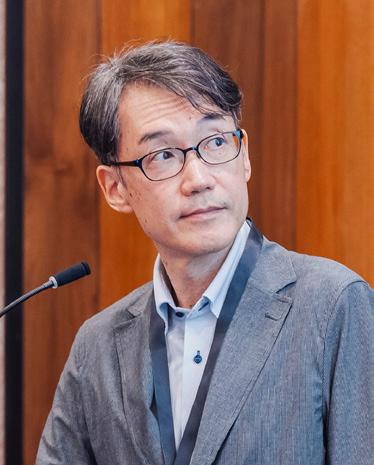

Melissa Ooi, MD
Senior Consultant, National University Cancer Institute
Singapore
Daryl Tan, MD
Director of Research, Raffles Cancer Centre
Singapore
The 2025 AMN Master Class was held at the Voco Hotel in Singapore, with an opening reception on July 25, and a two-day agenda of educational sessions on July 26–27. The Master Class was attended by 45 physicians who treat patients with myeloma. The participating doctors represented all 11 countries and regions that are part of the AMN.
Following an opening presentation on the role of the AMN in Asia, the Master Class educational program proceeded with a series of lectures and discussion sessions that covered the gamut of myeloma treatment options.
Dr. Chng presented an overview of global diagnostic criteria for myeloma, focusing upon prognostic factors and risk stratification. This was followed by lectures on treatment options available in Asia, with Dr. Handa speaking about newly diagnosed transplant-eligible patients, Dr. Tan reviewing options for newly diagnosed transplant-ineligible patients, and Dr. Ooi discussing treatment options for patients with relapsed/refractory myeloma.
Dr. Nagarajan discussed CAR T-cell and other immune therapies, and Dr. Chim’s presentation on infection and side effects, especially arising from the newer therapies, closed out the day.
The second day of the Master Class was devoted to a review of clinical cases by the faculty as presented by participants. This provided a unique opportunity for the physicians to gain insights from the experts, as well as hone their own presentation skills before an international audience.
In responding to an evaluation questionnaire, the participants noted strong appreciation for the course and welcomed the topics covered, with special appreciation for the case study session.
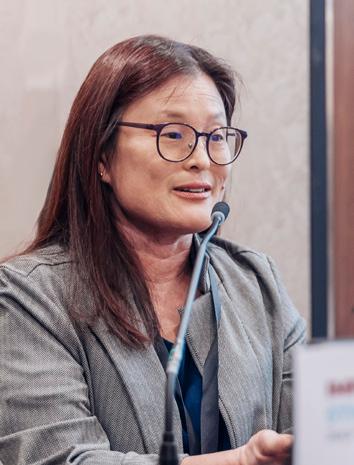
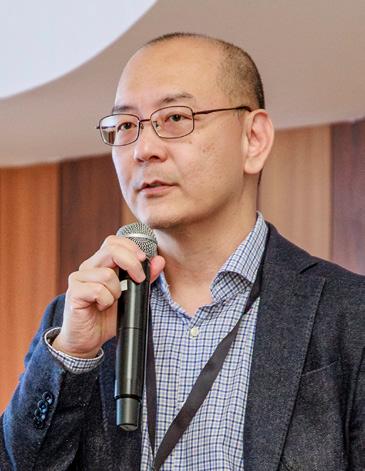
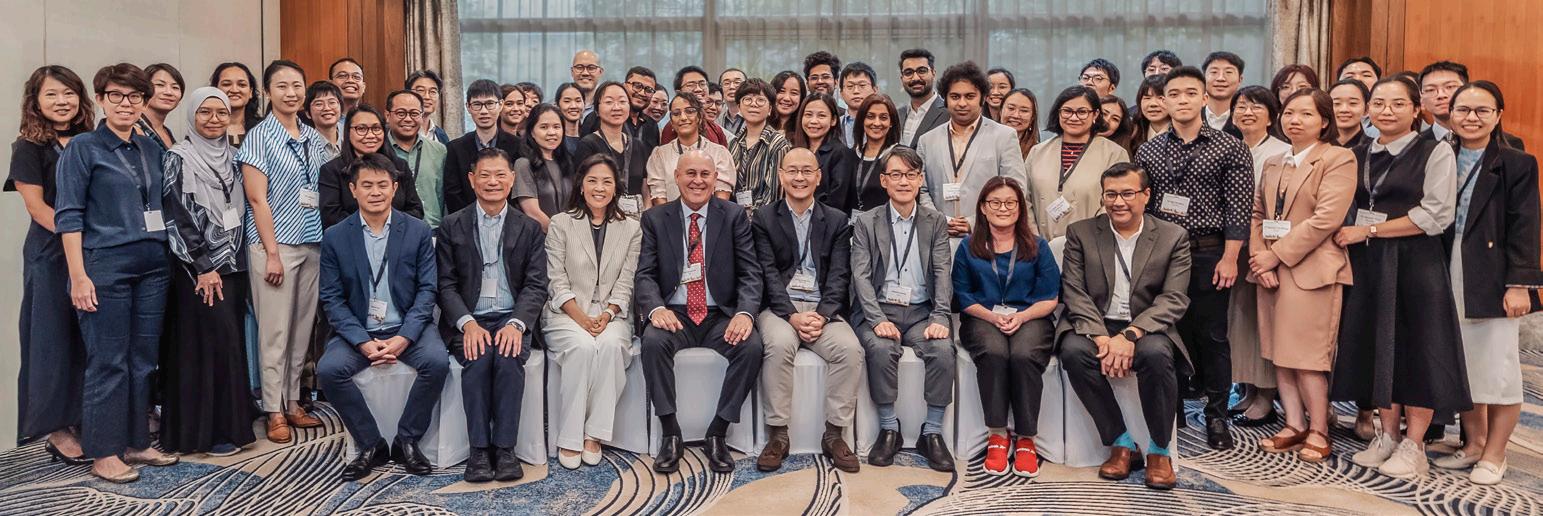
At a dinner celebration, Certificates of Achievement were awarded to the participating physicians, followed by a talk encouraging the doctors to maintain their efforts in the field of myeloma.
In 2026, the IMF is considering an expansion of the AMN Master Class program. The mid-year Master Class in Singapore might be extended for an additional day and the number of invited participants would double.
The IMF is grateful to our sponsors for supporting this important training activity: Bristol Myers Squibb, Glaxo Smith Kline, Johnson & Johnson, Pfizer, and Sanofi, as well as Chinese companies Beigene, Sanofi China, and Takeda China for their support of the Chinese participants. The IMF also appreciates our local partners Destination Asia and Lotte/JTB for their assistance both before and during the AMN Master Class. MT

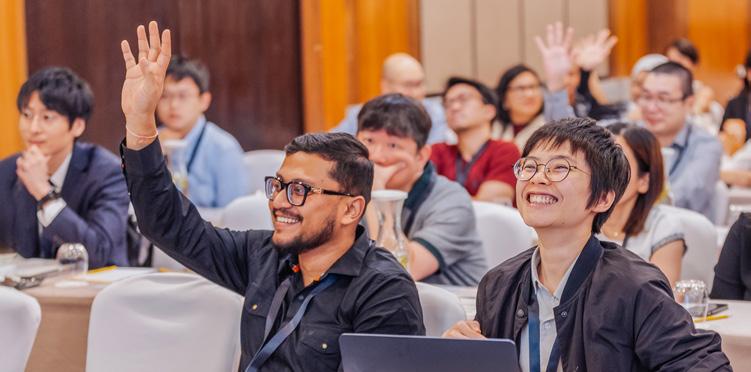
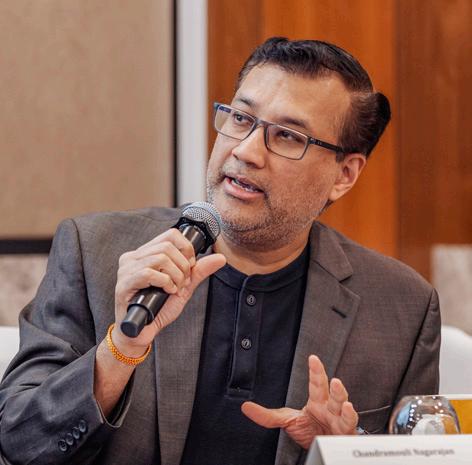
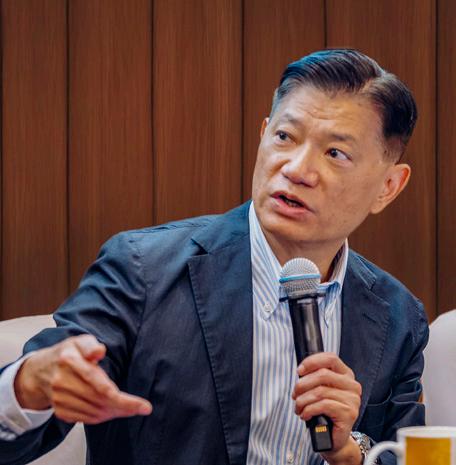
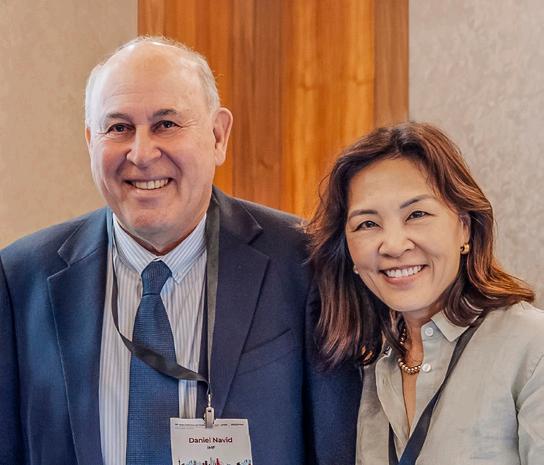
By Robin Tuohy
IMF Vice President, Patient Support
Helen Keller once said, “Alone we can do so little; together we can do so much.” This powerful quote resonates deeply within the myeloma community, especially among the patients, care partners, and healthcare professionals who choose to lead myeloma-specific support groups and help build a stronger community. Their dedication fuels hope and empowers education for so many.
The International Myeloma Foundation (IMF) is proud to stand beside these leaders, supporting them with the tools and resources for guiding their groups – whether they meet in person, virtually, or in hybrid formats. The IMF Support Group Team assists these myeloma-specific groups by sharing best practices, materials, website technical support, and ongoing leadership development so that they thrive and remain sustainable. Group leaders are not solely facilitators; they are ambassadors for myeloma awareness and advocacy, sources of warmth and belonging, and champions of knowledge and clinical insight. The impact of the compassionate connections they support extends far beyond group meetings. That is why many members refer to their groups as their FaMMily.
Since 1999, the IMF has hosted the annual Support Group Leaders Summit (SGLS), a unique gathering where leaders come together to network and learn about the latest in myeloma research and treatment. The 2025 SGLS Summit was held July 17–20 at the Omni Viking Lakes in Eagan, Minnesota.
The IMF welcomed 108 support group leaders representing 81 groups from across the U.S. The theme – “Hope in Action: Embracing the Art & Science of Support Group Leadership” –celebrated the dual roles of the group leaders. For many, this experience is transformational. As one leader reflected: “You all went above and beyond to put on an amazing Summit this year. I’m fired up and rethinking some ways to better support our group members. You all rock... as well as the rest of the IMF team.”
The Summit began with a networking reception and dinner, bringing together 87 returning and 21 first-time participants. An engaging icebreaker invited leaders to reflect on


their myeloma journeys through a creative prompt: “What type of ice cream does your myeloma journey resemble right now?” The responses – ranging from “rocky road – sometimes sweet, sometimes salty” to “vanilla – pretty boring, just like I like it!” – sparked an instant connection and set a meaningful tone for a weekend rooted in shared learning, support, and inspiration.
The educational session by led Dr. Joseph Mikhael (IMF Chief Medical Officer) and Dr. Shaji Kumar (Mayo Clinic) covered all clinical aspects of myeloma – screening, smoldering disease, frontline treatment, maintenance, and relapse – and gave an overview of FDA-approved treatments as well as clinical trials. Drs. Mikhael and Kumar emphasized the global impact of the IMF International Myeloma Working Group (IMWG) and the IMF Scientific Advisory Board (SAB) in shaping treatment strategies.
A powerful myeloma advocacy panel featured Michael Riotto (Philadelphia, PA) and fellow leaders and graduates of the IMF Advocacy Master Class Kathy Missel (Sebring, FL), Diane Hunter (Montgomery, AL), and Elissa Anticev (Staten Island, NY). All shared how their personal stories are driving policy change at local, state, and national levels. You can sign up for the next IMF Advocacy Master Class at advocacy.myeloma.org
Serdar Erdoğan (Director, IMF Global Myeloma Action Network® [GMAN®] and EU and Middle East Patient Programs) broadened the lens with a powerful presentation on international

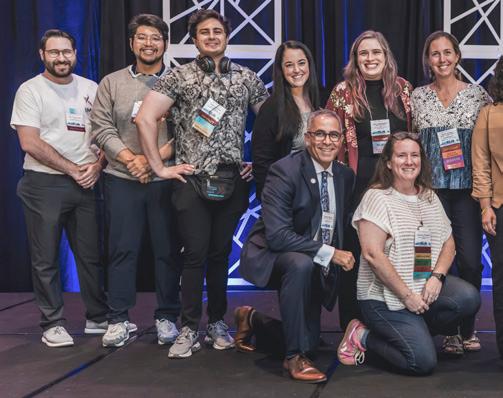

collaboration. GMAN is an IMF-led coalition of myeloma patient organizations from more than 40 countries. Global unity helps us to address disparities and drive equitable care for myeloma patients worldwide.
An in-depth session on myeloma tests and diagnostics led by IMF Nurse Leadership Board member, Beth Faiman, PhD, MSN (Cleveland Clinic) was followed by separate breakout sessions for patients and care partners, creating dedicated spaces for tailored discussions that recognized their unique roles, challenges, experiences, and insights. Wellness-focused sessions included:
Mindful doodling, led by Stan Smith (Denver, CO)
Nutrition strategies, led by Joy Heimgartner, MS, RDN (Mayo Clinic, Rochester, MN)
Navigating grief, led by Malcolm Katz & Sally Weber, LCSW (Encino, CA)
A panel discussion on bispecific and CAR-T therapy experiences followed, moderated by Dr. Mikhael and IMF Nurse Leadership Board member, Teresa Miceli, BSN, RN. Leaders Susan & Robert Benjamin (Santa Fe, NM), Jim & Linda Shoemaker (Memphis, TN), and Thomas Goode (Durham, NC) shared the wisdom and hope gained during their personal journeys with myeloma.
A session on philanthropy and engagement explored how community support and giving can expand their reach and impact.
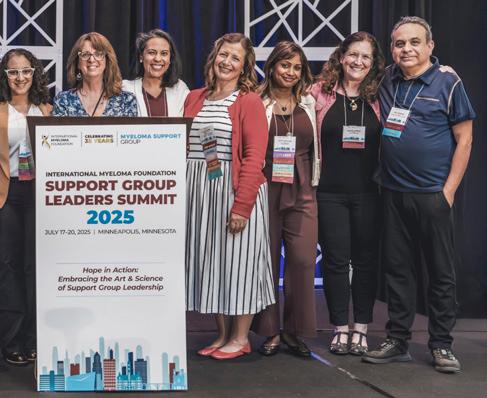
Special thanks to leaders Michael Riotto, Kathy Missel, and Carl Burgman (Tulsa, OK), who shared their personal “why” and spoke powerfully about the role of engagement and philanthropy in sustaining and growing support group efforts.
IMF Assoc. Directors of Support Groups, Katie Atkins, MSW, LCSW and Yara William, DrPH, MHA shared actionable best practices for navigating support group dynamics and difficult conversations. The opportunities for connection, self-care, and reflection included the IMF Resilience Gallery and peaceful walks around Viking Lake.
The Summit concluded on a high note with keynote speaker Barry E. Knight delivering an uplifting message about turning hope into action. His words inspired leaders to embrace their purpose, lead with authenticity, and ignite their spirit of leadership in service of their communities.
This event would not be possible without the generous support of our industry partners and donors. The IMF thanks our sponsors: AbbVie, Amgen, Bristol Myers Squibb, GSK, Johnson & Johnson, Johnson & Johnson | Legend Biotech, Karyopharm Therapeutics, Kite, Arcellx, Pfizer, Regeneron, and Sanofi.
The IMF also extends our deepest gratitude to individual donors: Jack & Nell Aiello, Jennifer & Bud Gruenberg of the V&L Marx Foundation, Malcolm Katz & Sally Weber, Carl & Jenny Burgman, Scott & Katherine Huge, and Ray Uzanas. The IMF extends our special thanks to the educational faculty, the IMF Support Group Team, and the IMF Meeting Planning Team.
Support groups offer connection, education, and hope –no one should face myeloma alone. If you’re inspired by the work of these incredible support group leaders and want to start or join a myeloma-specific support group, the IMF is here to help. Visit myeloma.org/support-groups or email us at sgteam@myeloma.org. Together, we turn hope into action –one group, one leader, and one life at a time. MT
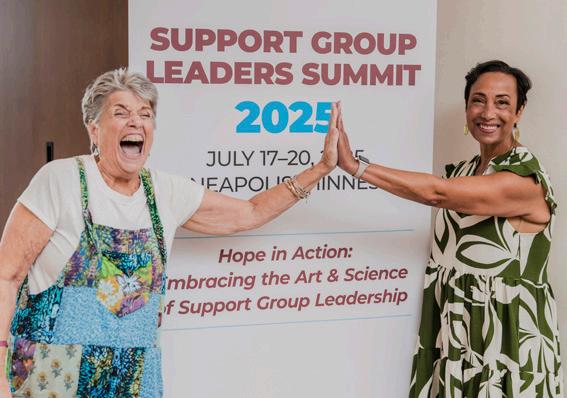
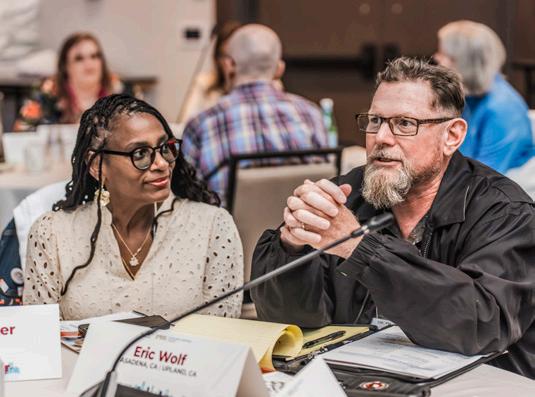
‘Do You #kNOwMyeloma?’ reaches
By Peter Anton IMF Vice President, Marketing
For the 2025 Blood Cancer Awareness Month (BCAM), the International Myeloma Foundation (IMF) revived its highly successful #kNOwMyeloma campaign, centering on the question: “Do You Know Myeloma?”
Reaching more than 25 million in 62 countries, the IMF’s BCAM educational campaign expanded awareness of multiple myeloma – from those who have no knowledge of the disease to those living with myeloma. The campaign also inspired participants to continue advocating for those impacted by the second-most common blood cancer in the world.
By motivating individuals to ask questions and educate themselves about multiple myeloma, and by encouraging them to share these learnings via social media, the IMF successfully attained its goal of fostering active and interactive participation from the myeloma community.
“Do You Know Myeloma?” also inspired advocacy and provided knowledge about treatment options, wellness advice, supportive care, and research developments for those living with myeloma through its two-pronged approach.

The IMF educated the public and those living with the disease by:
Informing them on symptoms, early diagnosis, tests and staging, and other essential information about myeloma
Making them aware of the IMF’s wealth of myeloma-related resources and publications, and the IMF’s InfoLine team, which addresses myeloma-related questions and concerns
Raising awareness on the high incidence of myeloma among those of African descent
Affirming the IMF Support Group team’s crucial role in empowering patients and care partners with information, insight, and hope
Providing vital information and helpful advice on self-care for care partners
The IMF aimed to eradicate myeloma by inspiring people to advocate for the IMF’s mission of working toward prevention and a cure through:
Disseminating information about the IMF’s research initiatives, and other major developments in myeloma research
Raising awareness of existing as well as new and breakthrough treatment options, such as CAR T-cell therapy and bispecific antibody immunotherapy
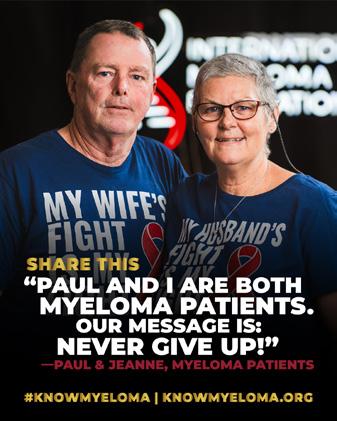
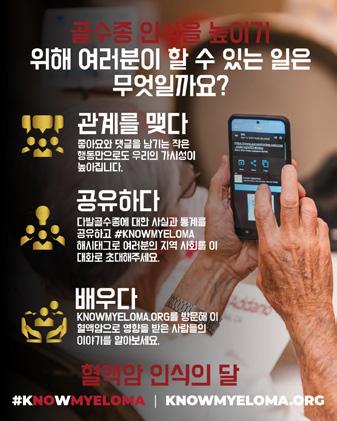


Providing information about the International Myeloma Working Group (IMWG)
Affirming the Global Myeloma Action Network’s (GMAN) important global mission and goals in improving access to medicine and treatment; increasing myeloma awareness; and building capacity for patients, patient advocates, and myeloma organizations across the globe
Advocating for early detection and diagnosis among African Americans, who are at a higher risk for myeloma
Spreading the word about the M-Power Project and its objectives: improving the short- and long-term outcomes of African American myeloma patients and breaking down barriers for the African American myeloma community
Presenting the latest updates on ongoing clinical trials and FDA drug approvals for the treatment of myeloma
Increasing fundraising efforts for the IMF’s research initiatives
The IMF’s Blood Cancer Awareness Month website provided downloadable infographics on myeloma facts, research breakthroughs in myeloma treatment, and inspirational stories of hope and resilience from those living with the disease through the IMF’s social media tool kit. These were then shared extensively in social media while using the hashtag #kNOwMyeloma
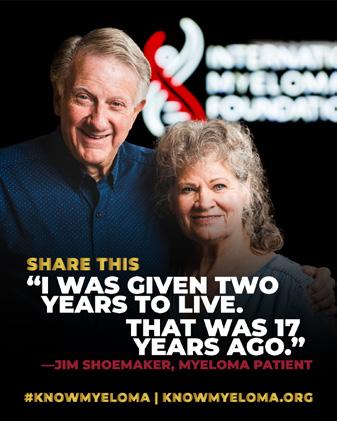
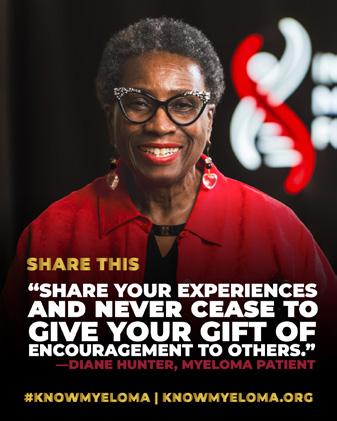
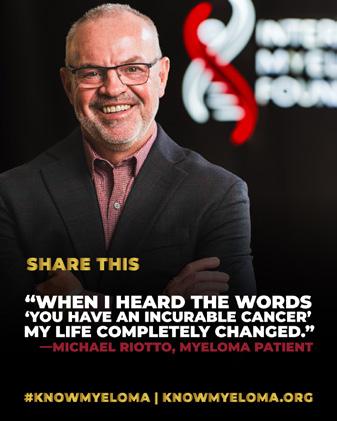
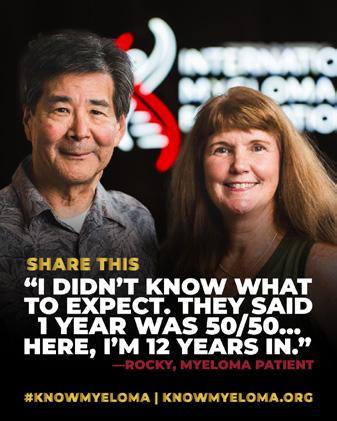
Through a series of Facebook LIVE events, the IMF shared information based on its four founding principles – Research, Education, Support, and Advocacy – while highlighting the crucial role of fundraising in fulfilling the IMF’s mission of improving the quality of life of myeloma patients while working toward prevention and a cure, and its vision of a world where every myeloma patient can live life to the fullest, unburdened by the disease.
Q&A with Joseph Mikhael, MD (IMF Chief Medical Officer)
Q&A with Beth Faiman, PhD (IMF Nurse Leadership Board)
The IMF’s Facebook LIVE events with Dr. Mikhael and Dr. Faiman were viewed about 12,000 times as of the date of this publication.
Coinciding with Blood Cancer Awareness Month was the signature IMF Myeloma Cures fundraiser, the IMF Iceland Cycling Expedition, and you can read more about it in this edition of Myeloma Today.
The IMF is truly grateful to the following sponsors for supporting myeloma awareness during Blood Cancer Awareness Month: Adaptive Biotechnologies, Binding Site, Bristol Myers Squibb, GSK, Johnson & Johnson, Karyopharm, Pfizer, Regeneron, and Sanofi. MT
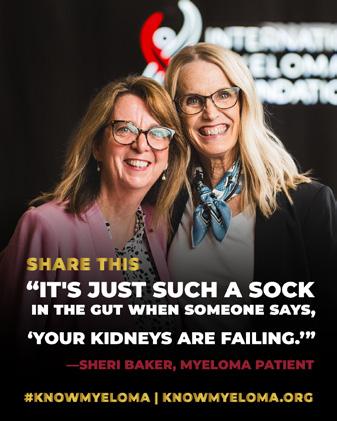

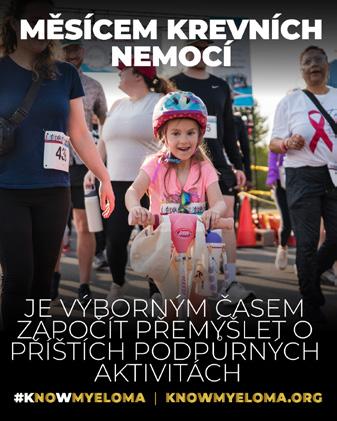
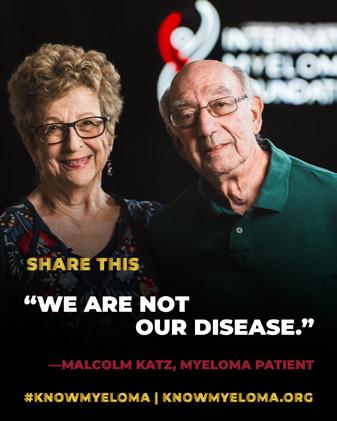
By Danielle Doheny IMF Director, Public Policy & Advocacy
September is Blood Cancer Awareness Month, a time to raise awareness of the challenges faced by patients living with myeloma and other blood cancers. For many of these patients, orally administered cancer therapies are essential. These medications allow treatment from home, maintain quality of life, and reduce the need for frequent clinic visits. Yet healthcare insurance plans frequently cover oral drugs differently from intravenous (IV) therapies, leaving patients whose treatment comes in a pill burdened with higher out-of-pocket costs. This coverage gap can make it difficult for patients to start or stay on their prescribed therapy.
The Cancer Drug Parity Act, also known as H.R. 4101, seeks to address this inequity. The H.R. 4101 bipartisan legislation was reintroduced in the U.S. House of Representatives by Glenn Grothman (R-WI), Suzanne Bonamici (D-OR), Gus Bilirakis (R-FL), Joe Morelle (D-NY), Brian Fitzpatrick (R-PA), and Doris Matsui (D-CA). H.R. 4101 would require federally regulated insurance plans to cover oral cancer medications on the same terms as IV therapies. While 44 states and the District of Columbia have enacted laws guaranteeing equal coverage for oral and IV treatments, millions of Americans with federal plans continue to lack these protections. H.R. 4101 would extend parity to these patients, leveling the playing field and giving them consistent access to life-saving therapies.
Healthcare insurance disparities can have a major impact on treatment outcomes. For patients with myeloma and other blood cancers, oral therapies allow for flexibility in dosing and administration, which can improve adherence and help manage side effects. When patients face higher costs for oral medications, they may be forced to delay treatment, reduce doses, or even discontinue therapy. This can put their health – and lives –at risk. By ensuring coverage parity, H.R. 4101 removes these barriers and allows patients to follow the treatment plan recommended by their doctors without facing added financial strain.
Beyond affordability, oral parity is about equity. Decisions about treatment should be guided by medical necessity, not by the quirks of healthcare insurance design. H.R. 4101 ensures that oral therapies are not disadvantaged simply because of the way they are administered. H.R. 4101 is a practical, bipartisan step toward ensuring all patients have equal access to the therapies that best meet their needs.
For blood cancer patients, healthcare insurance parity can make a tangible difference in daily life. Oral therapies reduce the time, travel, and disruption associated with IV treatments that must be administered at a clinic or doctor’s office, allowing patients to maintain their routines and independence. Removing financial barriers through healthcare coverage parity allows patients to focus on their health, rather than worrying about co-pays or coverage limits.

In September 2025, a group of myeloma patients trained through the IMF’s Advocacy Masterclass came to Capitol Hill as part of the IMF’s inaugural Hill Day to advocate for issues that directly impact patients. H.R. 4101 was a key focus, alongside other policies affecting access to care, treatment affordability, and the importance of cancer research. The voices of patients with myeloma highlighted the urgent need for healthcare insurance reforms that ensure all patients can access the therapies that are right for them. Please reach out to us at advocacy@myeloma.org to learn more about the Advocacy Masterclass or how you can get involved in the IMF’s myeloma advocacy efforts.
Constituent support is critical for advancing legislation. Patients, care partners, and advocates can make an impact by urging House members to cosponsor H.R. 4101. By supporting this bill, Congress can help ensure that healthcare insurance coverage reflects modern treatment options and prioritizes patient needs over outdated distinctions between oral and IV therapies.
H.R. 4101 is not just policy; it is a lifeline for patients who rely on oral therapies to manage myeloma or other blood cancers. Passing this legislation will help remove financial obstacles, improve access to essential medications, and support adherence to treatment plans, ultimately improving outcomes and quality of life for patients. To show your support for H.R. 4101, contact your Member of Congress. Visit advocacy.myeloma.org to learn more about our activities and how we support our advocates, and subscribe to the IMF Advocacy Newsletter at subscribe.myeloma.org. MT
By Jennifer Scarne IMF Chief Financial Officer
In the summer of 2015, Kent Oliver was in his early 30s. He and his wife, Candace were busy raising two daughters – then twoyear-old Annie and newborn Charlotte. When he was diagnosed with myeloma, Kent and Candace found themselves facing a steep learning curve, life-altering frontline therapy, and a stem cell transplant. With these challenges came the realization of the importance of finding purpose. “Upon diagnosis, I think we all gravitate toward doing something that can alter the impact of myeloma on our lives,” Kent explains. “For us, that became LAUGHS 4 LIFE.”
For Kent and Candace, it was important to channel their energy into something positive and meaningful. The LAUGHS 4 LIFE annual event was launched in July 2016 as a way to bring the comfort of laughter. “It is our Thank You to the friends, family, caregivers, and supporters who have made my personal journey tolerable,” says Kent. “For our family, LAUGHS 4 LIFE has provided purpose. It allows us to focus on something other than treatments or medications or appointments. But most importantly it’s our way to benefit incredible organizations that are making a tangible difference with cancer research and patient-focused initiatives.”
LAUGHS 4 LIFE is held at the Historic Saenger Theater in Kent’s hometown of Hattiesburg, MS. Nearly 900 people attended the first event in 2016, raising more than $124,000 – an extraordinary start for Kent and Candace’s very first fundraising experience. Each year, a portion of funds raised through LAUGHS 4 LIFE is designated to support the IMF Brian D. Novis Research Grant program. Proceeds from LAUGHS 4 LIFE have also supported the launch of IMF’s Myelo®, a 24/7 generative AI assistant designed to provide real-time support and information to myeloma patients.
Research Grants Funded by LAUGHS 4 LIFE
To date, the Oliver Family has supported seven myeloma research projects around the world:
2017 – Alessandra Romano, MD, PhD
Ospedale San Raffaele, Milano, Italy
2018 – Eline Menu, MD, PhD VUB, Brussels, Belgium
2019 – Andrew Zannettino, PhD
University of Adelaide, Australia
2020 – Mikhail Nikiforov, PhD
Wake Forest University Health Sciences, NC, USA
2022 – Xabier Agirre, PhD
University of Navarra, Spain
2023 – Camille Edwards, MD Boston University, MA, USA
2024 – Martin Gazvoda, PhD
University of Ljubljana, Slovenia

Much like the myeloma journey itself, LAUGHS 4 LIFE has come with challenges. Kent, who now serves on the IMF Board of Directors, reflects on the experience:
“The most important thing is finding an outlet that helps you cope. The IMF has served as both our sounding board and source of encouragement. Each year, we’ve been lucky to have members of the IMF family come to South Mississippi to help make LAUGHS 4 LIFE a success. Healing isn’t just about medicine; it’s also about connection and joy. Since 2016, we have distributed more than $1,390,000 to our beneficiaries, including $175,000 raised at the 2025 event. Well over half a million dollars have been directed to the IMF in support of research and patient resources like Myelo. It has been a joy to have a role in supporting the IMF’s mission in a unique and positive way.”
The IMF is deeply grateful to Kent and Candace for their contributions to the myeloma community. It is an honor for the IMF to walk alongside them in this important work. MT


Twenty intrepid cyclists completed a 150-mile ride across the rugged Icelandic terrain for the International Myeloma Foundation’s 2nd annual Iceland Cycling Expedition from August 27 through September 2, 2025. The cyclists included myeloma patients, care partners, myeloma doctors, and industry partners. They were united for one cause: to defeat myeloma.
The Iceland Cycling Expedition is an IMF Myeloma Cures signature marquee fundraiser, developed to highlight our diverse and robust research portfolio and to raise critical funds to help advance the IMF’s research initiatives.
One component of the IMF research portfolio that both inspires and benefits from this event is the iStopMM (Iceland Screens, Treats, or Prevents Multiple Myeloma) study at the University of Iceland in Reykjavík. Conceived in 2016, supported by the International Myeloma Foundation (IMF), launched in 2017, and led by Sigurður Yngvi Kristinsson, MD, PhD (Professor of Hematology, University of Iceland, Reykjavík), iStopMM is an ambitious research project and the largest ever of its kind.
Also in Reykjavík, deCODE Genetics is a company that has performed whole-genome sequencing for the entire population of Iceland and has partnered with the iStopMM study. The IMF’s Iceland Cycling Expedition began with a tour of deCODE genetics and a behind-the-scenes research briefing from the iStopMM team.
Each expedition cyclist had their personal reason for joining the ride. Together, the cycling team demonstrated the spirit of community and vigor with every turn of their pedals.
Diagnosed with myeloma in May 2022 at age 36, Ashey Dieks has been a lifelong cyclist. She shared that through her myeloma journey, “cycling became more than just a form of exercise – it became a symbol of resilience…Cycling doesn’t add days to life; it adds life to my days.”
Benjamin Freund, whose journey as a patient with myeloma began in 2019, said that by doing this ride, “I’m showing the disease that I will continue to enjoy life and thrive despite it.”
Katherine Podgroski has been facing myeloma for decades – first as a care partner to her mother Irene and now as a smoldering myeloma patient herself. Katherine said, “This journey is dedicated to my mother, and most importantly, to my children. It is a reminder that we can do anything, and that we can make a meaningful difference in the fight against cancer.”
Jered Haddad, a myeloma patient who rode in the first expedition in 2024, returned for another ride because “Participating in 2025 provided me with a platform to share my personal journey in fighting myeloma and to show fellow patients that it is possible to return to a normal life.”
Richard Pampe joined the expedition because “Facing myeloma inspires me to stay strong and healthy. The opportunity to participate in the IMF Iceland Cycling Expedition is an honor.” Before the ride, he said, “I am eager to learn from others, inspire others, and to raise funding for research.”
Tatum Byhre is a care partner to her mother who was diagnosed in January 2024. She shared, “As both a caregiver and healthcare professional, I am deeply committed to supporting efforts that prioritize early intervention and work toward improving the lives of those affected by this devastating disease.”
Troy Fischer’s wife Carol was diagnosed with myeloma in 2020. He echoed Tatum’s comments, saying “Through this ride, I’m not only raising funds, but I’m also sharing our story to give a face to this disease and inspire hope.”
Four myeloma specialists dedicated time and energy to raise funds for research. Returning for a second year, Dr. Saad Usmani, a myeloma clinician and researcher at Memorial Sloan Kettering Cancer Center in New York City, served as the expedition’s



fundraising chair. Through the years, he has participated in 5Ks, relay marathons, half marathons, full marathons, and trekking. The IMF Iceland Cycling Expedition motivated him “to be a positive force of change for our myeloma community.”
Also returning for the second expedition, Dr. Cristina Gasparetto, a myeloma clinician and researcher at Duke Cancer Institute in North Carolina, took the helm as this year’s lead cyclist. Dr. Gasparetto said, “It takes a village to fight cancer!”
Dr. Jeffrey Zonder is a physician at the Karmanos Cancer Institute, an NCI-designated Comprehensive Cancer Center in Detroit, MI. He shared, “As a cancer survivor, my personal experience adds a unique and deeply motivating perspective to my work. It strengthens my commitment to continue supporting myeloma research, with the ultimate goal of finding a cure for patients with myeloma.”
Dr. Douglas Sborov is the Director of the Hematology Disease Center and the Plasma Cell Dyscrasias Program at Huntsman Cancer Institute at the University of Utah in Salt Lake City. He said, “My unwavering dedication to patient care, combined with my enthusiasm for advancing medical research, drives my participation.”
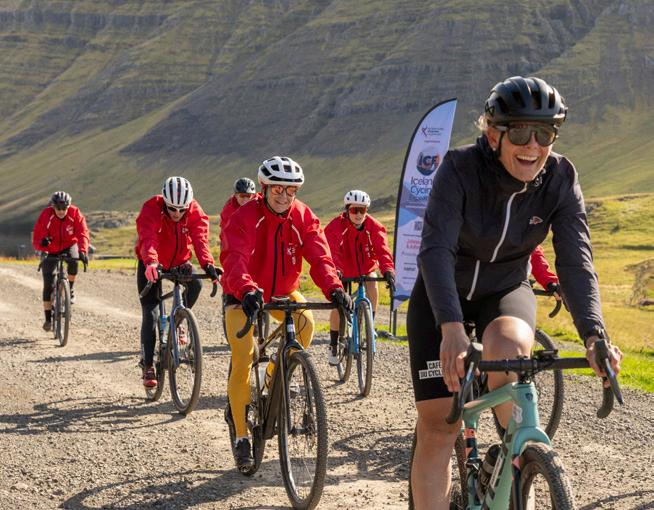
The 2025 IMF Iceland Cycling Expedition could not have been possible without the support of our industry partners:
Flagship Sponsors: Bristol Myers Squibb and Johnson & Johnson
Myeloma Warrior Sponsors: GSK and Sanofi
Myeloma Resilient Sponsors: Arcellx and Kite Pharma
Our industry partners also had representatives take part in the expedition. Cyclists included Keri Nelson, Doug Bailey, and Chris Smith (Bristol Myers Squibb), Zeyad Khalaf and Alejandro Rodriguez (GSK), Tracy Ely and June Lanoue (Johnson & Johnson), and Tara Nazarenko and Christina Tekle (Sanofi).
The IMF team was present to accompany the cyclists in a safety vehicle with supplies and moral support. Participating virtually was myeloma patient Christian Hoff, who cheered fellow patients and other cyclists who “faced an uphill climb with strength.”
The 2nd annual IMF Iceland Cycling Expedition was a journey of hope, determination, and resilience. See our videos from Iceland at youtube.com/@IMFMyeloma. To become part of the 2026 IMF Iceland Cycling Expedition team, apply at mmsm.link/4hggYXd Join us on the epic adventure of unity to end myeloma! MT
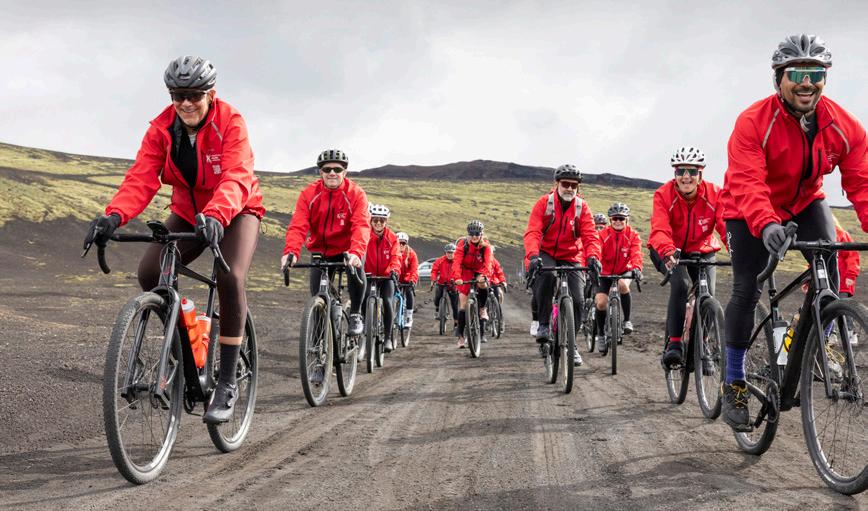
After living courageously with myeloma for more than 27 years, IMF Board Member Benson Klein passed peacefully on July 21, surrounded by his loving wife of 57 years, Carol Klein, and their daughters Lori Klein (Max Fainberg), Leanne Klein (fiancé Daniel Damesek), and Sarah Klein, along with his cherished grandchildren Ava, Morgan, Cecelia “Cece”, Sadie, Sebastian, and Jonah.
Throughout his journey with myeloma, Benson faced an exhausting array of medical challenges with remarkable resilience. “He had not only myeloma but also other cancers, surgeries, procedures, medications, chemo, immunotherapy, PT, a stint in a rehab hospital, and many visits to the ER over the last year,” said Carol. “He wanted to enjoy his life – spending time with people he loved, watching sports, eating good food, drinking good wine, listening to good music, telling jokes, and making people laugh. He had a way of making people feel seen and heard. He embodied what it means to be a trooper, working tirelessly through tough times. He was steady, resilient, and almost never one to complain about what he was dealing with.”
The advocate who found strength in service
Benson received his myeloma diagnosis in 1998. He could have retreated inward. Instead, he did what would come to define his character – he reached outward, seeking connection and community. Through research, he discovered the IMF and quickly contacted its co-founders, Susie Novis and Dr. Brian Durie. This sparked a relationship that spanned more than two decades, inspiring Benson to become a tireless advocate for the myeloma community who touched countless lives.
What made Benson’s approach to advocacy unique was his distinctive blend of humor and hope. The cartoonists Bill Rechin and Don Wilder, creators of the comic strip “Crock,” started out as Benson’s clients and then became friends. “Crock” featured a character named Trooper Benson. Like real-life Benson, Trooper was not about physical struggles, but about creating connections and lifting spirits during tough times. This philosophy would become the cornerstone of Benson’s advocacy work and his approach to living.
In 2024, the IMF launched the annual Trooper Benson Advocacy Internship program to train the next generation of myeloma advocates in effective policymaking that can support improved patient outcomes through access to timely diagnosis and treatment. The Trooper Benson Advocacy Internship program is funded for 5 years.
Long before myeloma entered his life, Benson established himself as a pillar of his community. For over 50 years, he practiced law as
a Principal Member of Ward & Klein, Chartered, earning his JD from Georgetown University College of Law in 1970. Benson’s professional credentials were impressive, including membership in the Maryland State Bar Association, the District of Columbia Bar Association, and the Montgomery County Bar Association. He served on the boards of Washington Hebrew Congregation, Eagle Bank, and the Shady Grove Adventist Hospital Governance Board. He demonstrated an unwavering commitment to strengthening both business and nonprofit communities as Chairman of the Eagle Bank Healthcare Advisory Board and President of the Shady Grove Adventist Hospital Foundation.
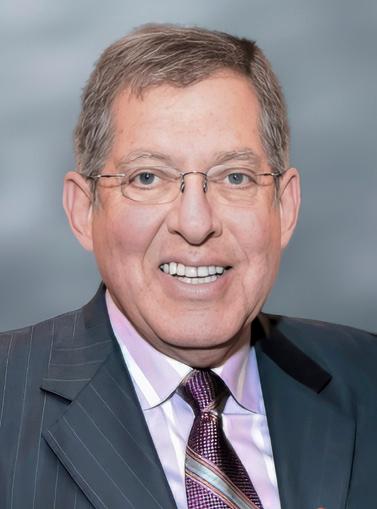
Benson’s professional and advocacy achievements were remarkable, but those closest to him knew that his greatest pride lay in his family. His approach to relationships was intentional and deeply personal. His daughter Lori captured this quality perfectly: “He made time for people and made sure they knew he was listening. He was so social. I think some of it was about a sense of belonging. He was very inclusive and welcoming. While he had an incredibly strong work ethic, and at times, it seemed like he was always working for his clients, he always made time for the important people in his life.”
This gift for connection extended especially to his grandchildren, each of whom experienced Benson’s love in their own special way. His granddaughter Cece reflected, “What I loved about Papa was the way he cared deeply and differently for everyone in his life. He had unique relationships with each of his daughters and grandchildren, yet still somehow managed to feel just as close to everyone. He made all of us feel loved and understood.”
Benson’s many talents included a gift for marking life’s special moments with original poems. His daughter Leanne treasures this legacy: “We have a binder of all his poems and corny jokes – for every special occasion!” His granddaughter Morgan added: “Our friends at camp would be excited to receive the next Papa poem installment.”

These poems were personal expressions of love crafted for the people who mattered most. His playful spirit extended to daily interactions as well. His daughter Sarah shared a particularly touching example: “My dad and Jonah traded jokes regularly. Papa loved to retell Jonah’s jokes. He and Jonah talked on FaceTime daily and would sometimes each hold a banana ‘talking on the phone.’”
Benson’s grandchildren remember not just his humor, but his gentle guidance. His granddaughter Sadie recalled moments that captured his caring nature: “Sometimes he would tell me to stop talking so fast or stop saying, ‘um,’ or that I was studying too much. He would joke and say, ‘I have to go study, too.’”
His grandson recalled treasured memories of togetherness: “He watched the Road Runner cartoons with me when I was little on a family vacation. We were in bed together watching one episode each night. Later, he watched some of my favorite Marvel movies with me.” These shared moments – from classic cartoons to modern superhero films – represented the bridge Benson built between generations.
Son-in-law Max recalled “watching him with his grandkids, when he would lean in close to each of them and say, ‘I love you the mostest.’” In those words lay the essence of Benson Klein – a man who understood that love, expressed freely and frequently, was life’s greatest gift.
Benson’s influence extended beyond individual relationships to inspire collective action. His entire family embraced Benson’s commitment to the myeloma community, turning their love for him into love for others facing similar challenges. Benson’s children and grandchildren held fundraisers like lemonade stands, art sales, and hosted a Race to Beat Myeloma twice, which raised more than $30,000 for the IMF. During the pandemic, they organized Zoom cooking classes to maintain community connection.
Lori’s business donated a percentage of its annual sales to the IMF. Carol actively participated in planning committees for IMF events. As the family shared, “We felt like we were involved in something much bigger than our own lives and the personal health struggles of our husband, father, and grandfather. He was a beacon of strength and hope, and the IMF gave much of that to him.”
Within the International Myeloma Foundation, Benson’s impact was both profound and lasting. As a Board Member for more than two decades, he served on key committees including Finance, Investment, Fundraising, and Governance. His contributions went far beyond policy and procedure; he brought wisdom, humor, and unwavering dedication to an organization serving some of the most vulnerable patients in the cancer community.
Diane Moran (IMF Interim CEO and Senior Vice President of Strategic Planning) reflected, “We are devastated by the loss of Benson Klein who was our dear friend – a constant presence and a wise counselor. His humor and generous spirit will be remembered and felt for many years to come.”
Dr. S. Vincent Rajkumar (IMF Chairperson of the Board) captured Benson’s unique leadership style: “I will miss Benson’s insightful leadership and his ability to balance compassion and levity, even as he worked
tirelessly to support a community facing the profound challenges of a life-threatening disease. I will also miss him greatly as a dear friend and mentor, who has steadfastly supported my journey as a physician and in my various roles at the IMF. Benson made enormous contributions to the IMF and to the myeloma community.”
Jennifer Scarne (IMF Chief Financial Officer) added, “To know Benson was to experience kindness, integrity, and deep commitment to others. He had a sharp wit and a steadfast loyalty to the IMF’s mission. His legacy within our organization is indelible, and his absence will be profoundly felt by all who had the privilege of working alongside him. We will continue to honor Benson’s remarkable life.”
Perhaps Benson’s granddaughter Ava provided the most perfect summary of her grandfather’s character: “One of the most special things about him was that he always made sure everyone knew they were extremely loved no matter what.”
This simple truth – that everyone deserves to feel loved unconditionally – guided Benson through 27 years of battling myeloma, 50 years of practicing law, 57 years of marriage, and countless moments of connection with family, friends, and fellow advocates. His wife Carol’s words ring with the clarity of deep love: “He was not without imperfections, but he was ours. The world was better because he was in it, and I believe many people feel that their lives were richer simply by knowing him.”
Benson’s story is ultimately one of transformation – how a man facing his own mortality chose to become a source of strength for others. Through his work with the IMF, Benson proved that one person’s dedication can ripple outward to touch thousands of lives. Benson’s battle may have ended, but his extraordinary legacy continues to unfold. MT

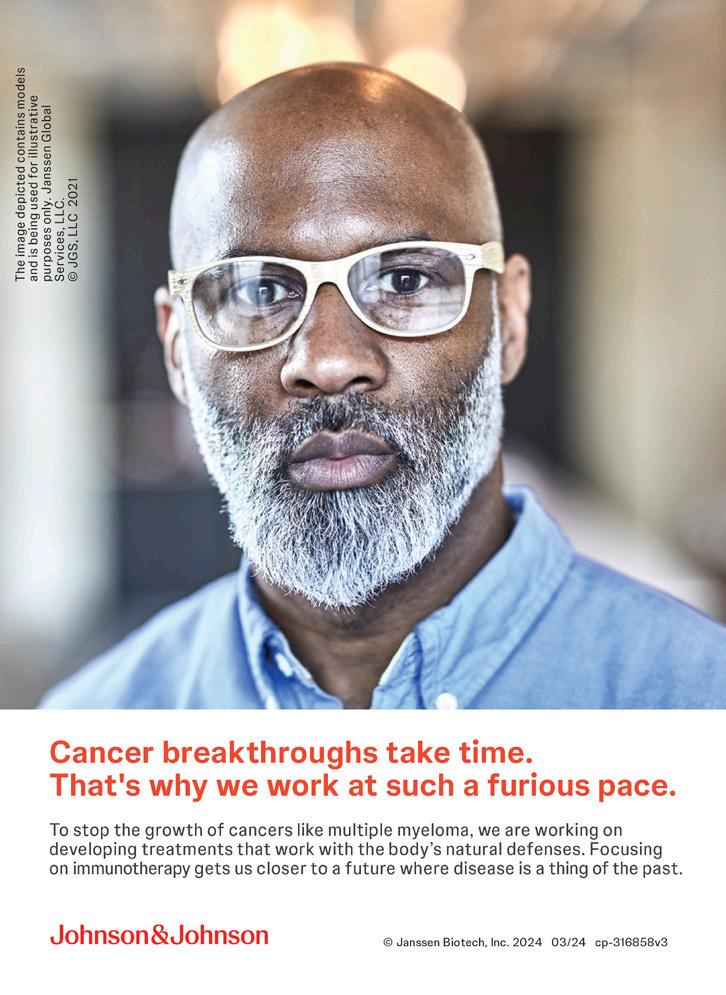
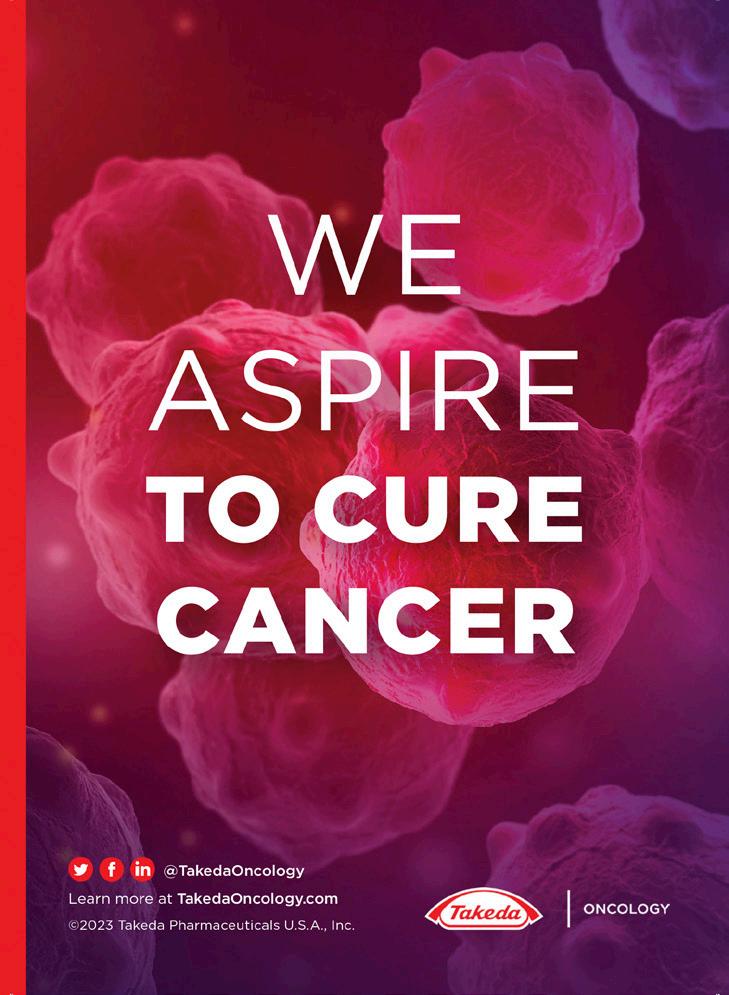
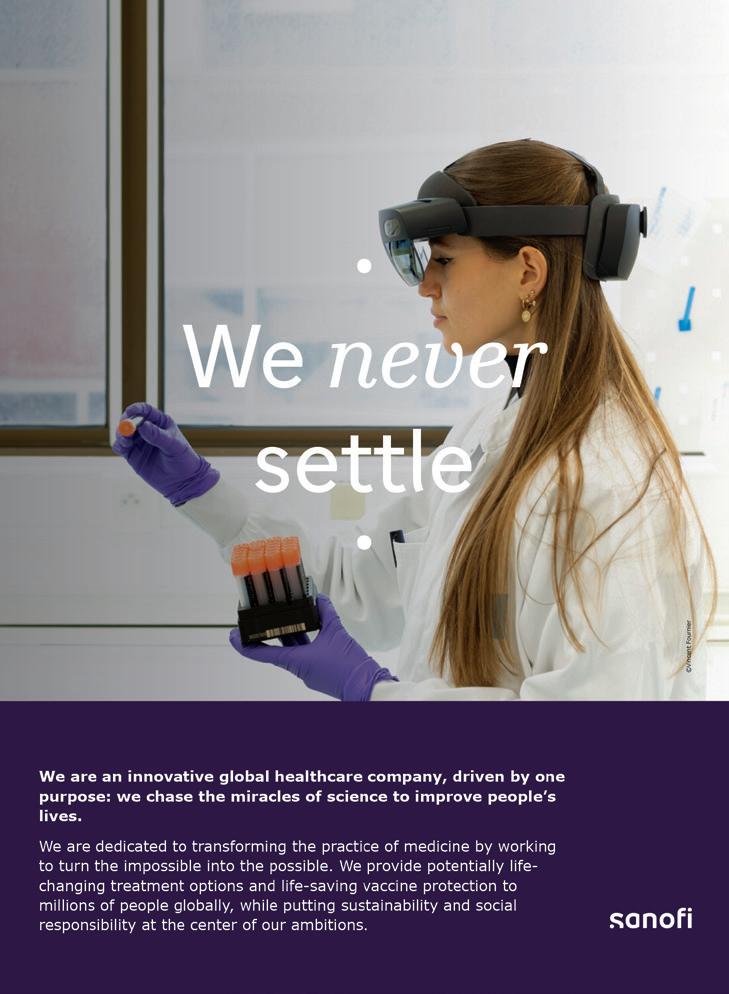

Las Voces de Mieloma – Grupo Virtual Un grupo de apoyo voluntario para pacientes interesados, se anima a los cuidadores, familiares y amigos a unirse a nosotros. Se trata de una excelente manera de conocer e interactuar con otros supervivientes y cuidadores para conocer los últimos avances en el tratamiento y la gestión del mieloma. Para más información: lasvoces@imfsupport.org lasvoces.support.myeloma.org
Join us at an upcoming meeting for myeloma patients and care partners
Patient & Family Seminars
March 13 & 14, 2026
Boca Raton, FL
May 1 & 2, 2026 Cleveland, OH
August 14 & 15, 2026
Los Angeles, CA
October 2 & 3, 2026
Short Hills, NJ
Myeloma Community Workshops
March 28, 2026
Kansas City, MO
April 25, 2026
Minneapolis, MN
June 27, 2026
Detroit, MI
August 1, 2026
Salt Lake City, UT
September 19, 2026
Portland, OR
October 24, 2026
San Diego, CA
November 14, 2026 Phoenix, AZ
For more information about upcoming IMF events, visit events.myeloma.org
Founders
Brian D. Novis • Susie Durie • Brian G.M. Durie, MD
Board of Directors
Chairperson S. Vincent Rajkumar, MD
Christine Battistini
Loraine Alterman Boyle
Martine Elias, MSc
George T. Hayum
Jason Katz
Andrew Kuzneski, III
Sagar Lonial, MD
Nikhil Munshi, MD
Charles Newman, MS
Kent Oliver
Poornima Parameswaran, PhD
Matthew Robinson, MBA
Sanjay Singh
Maria Whitman, MBA
IMF Executive Team
Diane Moran
Interim Chief Executive Officer
Senior Vice President, Strategic Planning
Peter Anton Vice President, Marketing
Joseph R. Mikhael, MD Chief Medical Officer
Lisa Paik
Executive Vice President, Research & Operations
Jennifer Scarne Chief Financial Officer
Robin Tuohy Vice President, Patient Support
IMF Team
Elizabeth Ableson
Administrative Assistant, Human Resources
Betty Arevalo
Inventory Control Manager
Katie Atkins Associate Director, Support Groups
Becky Bosley Director, Support Groups
Brittnay Brandon
Senior Meetings Coordinator
Michelle Carroll Director, Prospect Development
Lisette Contreras
Administrative Assistant, Meetings & Events
Danielle Doheny Director, Public Policy & Advocacy
Jon Fitzpatrick Senior Manager, Meetings & Events
Esther Garnica
Administrative Assistant, Operations
Simona Grace Director, Development
Sherrie Guerrero
Senior Director, Human Resources
Paul Hewitt Coordinator, InfoLine
Kevin Huynh Coordinator, Tech Solutions
Marya Kazakova
Senior Director, Editor-in-Chief, Publications
Missy Klepetar Coordinator, InfoLine
Sapna Kumar
Marketing Strategist
Phil Lange Director, Accounting
Jason London
Senior Manager, Marketing & Communications
Kristina Mease Director, Meetings & Events
Marquela Nastri
Grants Specialist
Jim Needham
Publication Design
Meghan O’Connor
Meeting & Project Manager, Content & Communications
Selma Plascencia Senior Director, Operations
Joy Riznikove
Database Administrator
Cecilia Romero Project & Technology Manager, Support Groups
Miko Santos Senior Manager, Tech Solutions
Narmeen Shammami
Senior Research Project Coordinator
Brando Sordoni
Senior Associate, Accounting & Distribution
Rafi Stephan
Senior Administrative Support
Daria Tabota Associate, Marketing & Communications
Joi Tisdale
Project Manager
Jennifer Wieworka Director, Support Groups
Sandy Wilkes
Grants Manager
Yara William Associate Director, Support Groups
